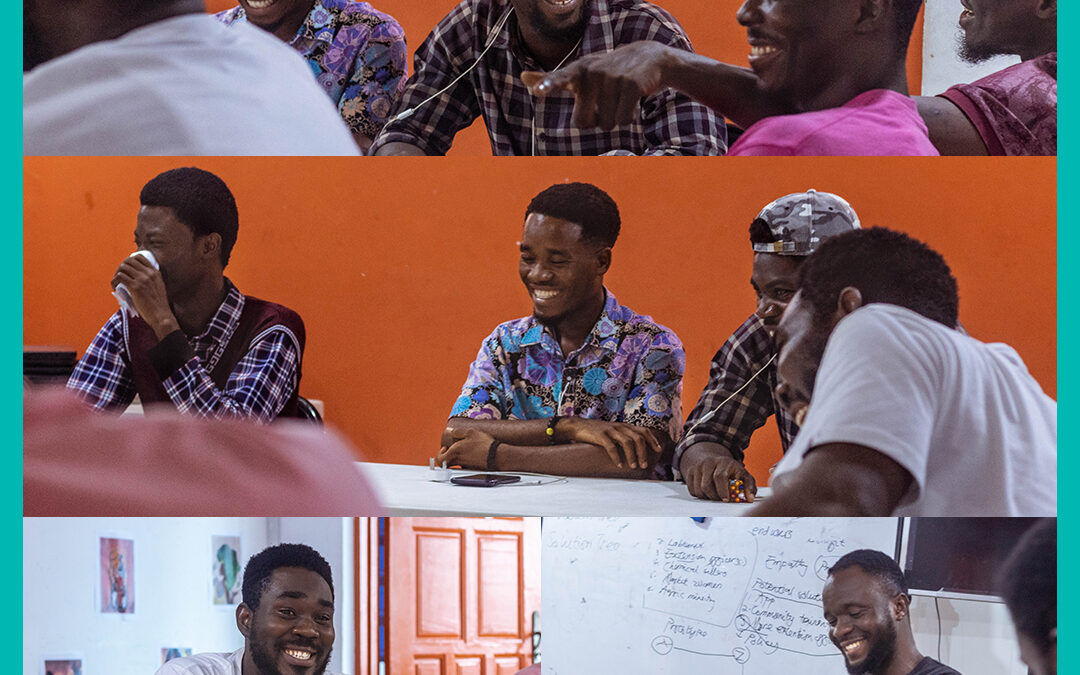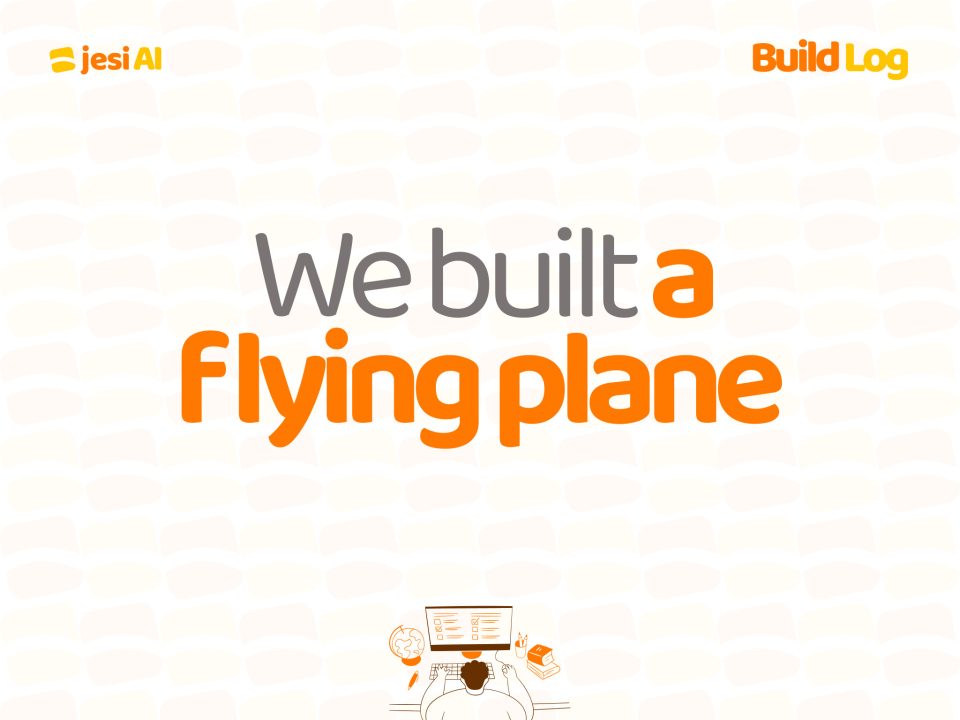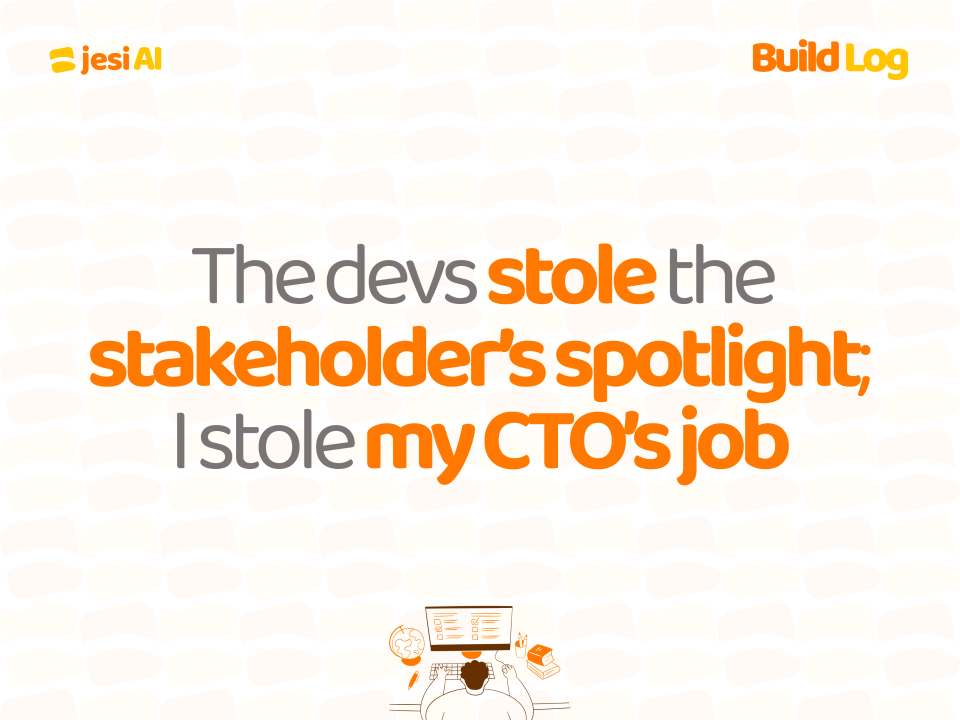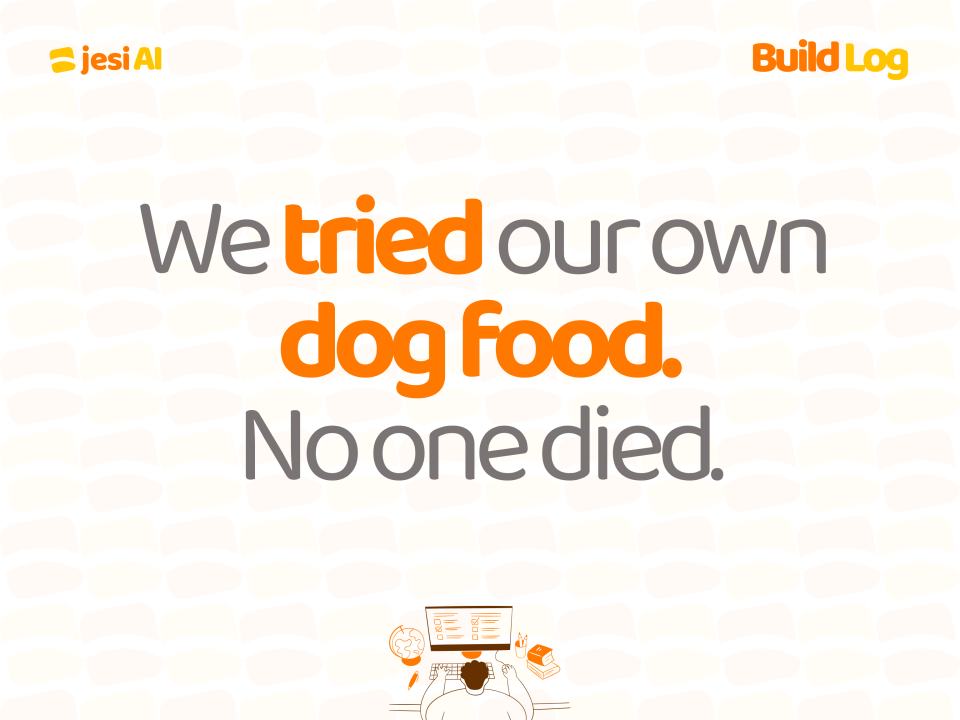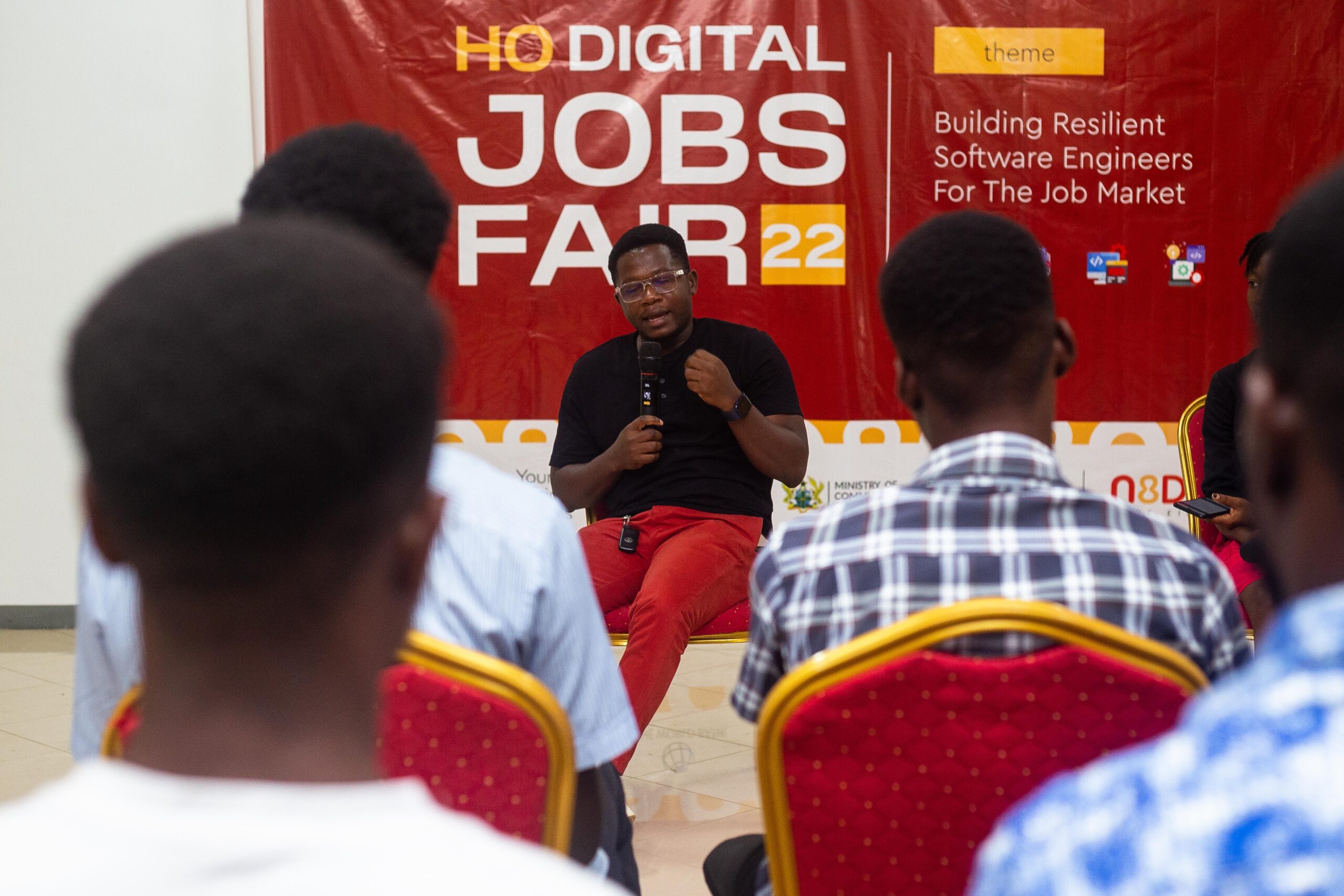
Node Eight Holds the 3rd Edition of the Ho Digital Job Fair for Young Job Seekers
November 25, 2022EOI – Consultancy Services for Monitoring, Evaluation and Learning (MEL) for Young and Safe Project
January 26, 2023As the year ends, it is natural to reflect on the events and experiences of the past year. Looking back, it is easy to see both the highs and the lows, the triumphs, and the challenges. But as we reflect on the year that was, it is essential to remember that every moment, no matter how difficult or joyous, has shaped us into the organization we are today. Whether we have realized it or not, each day has helped to mold and shape our character, our beliefs, and our values. As we enter the new year, we take stock of what we have learned and how we can use those lessons to create a better, more fulfilling future for ourselves and our community. This year, Node Eight has focused on building a strong community of entrepreneurs and developers by partnering with key stakeholders within the ecosystem.
Rebranding
After 5 years of operations, Ho Node Hub rebranded to Node Eight in 2022. A new name, logo, and identity that underscored our growth and renewed commitment to invest in digital startups, empower young African talents for the future of work and build inclusive communities on and offline.
#Eskills4girls
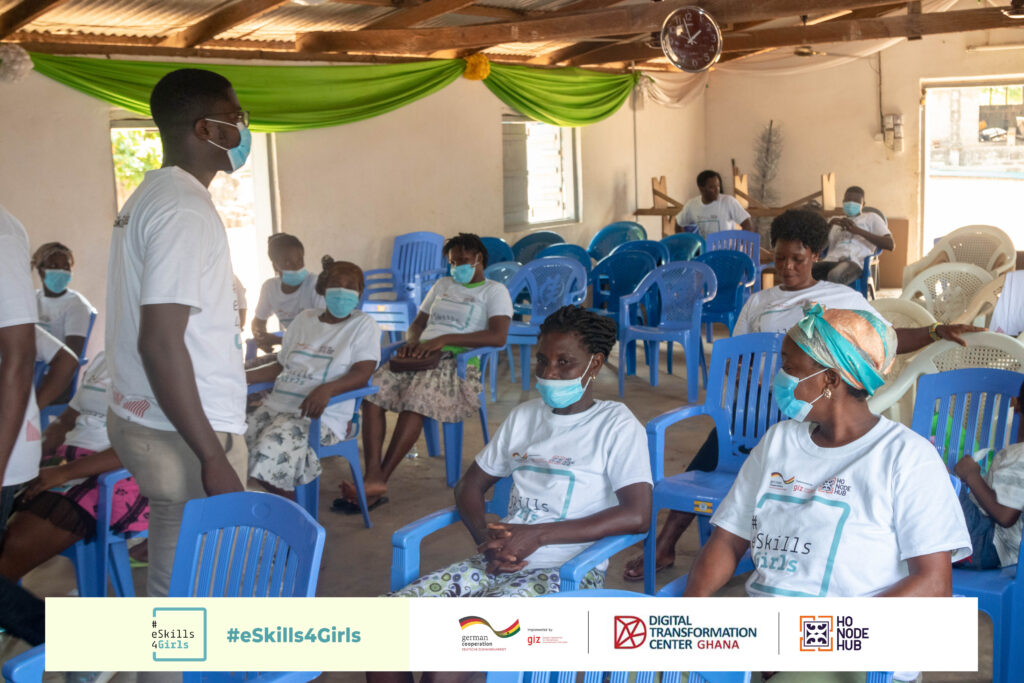
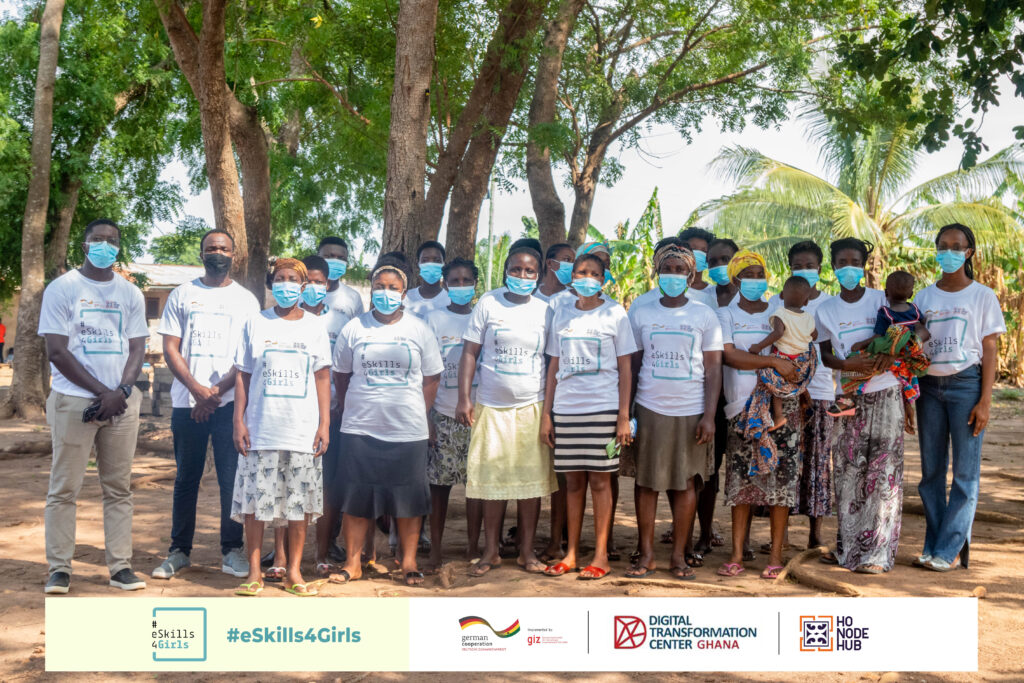
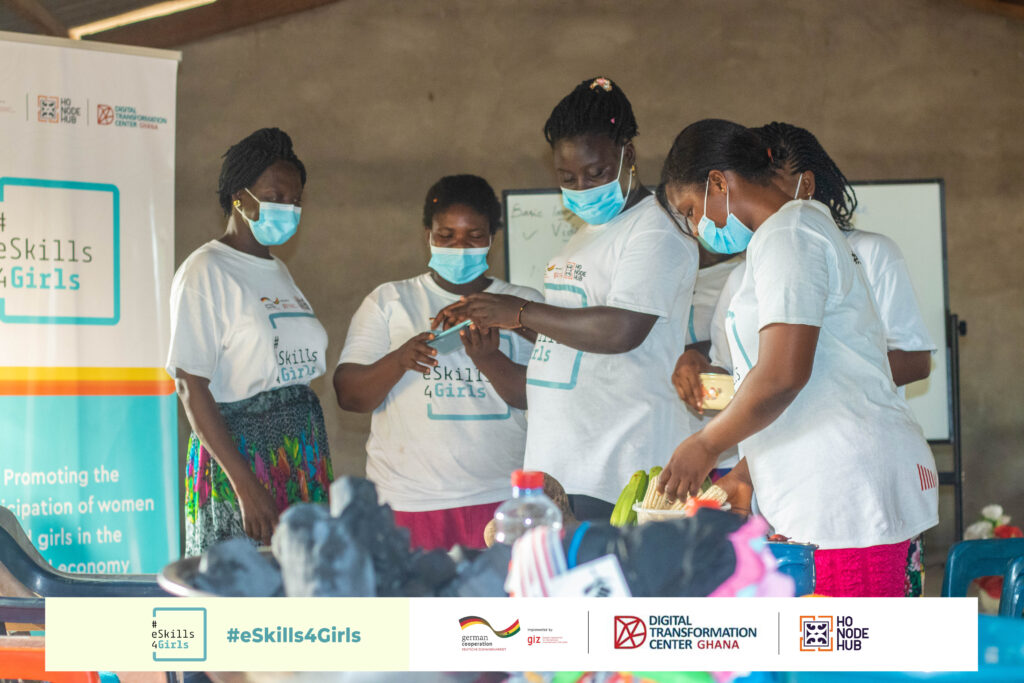
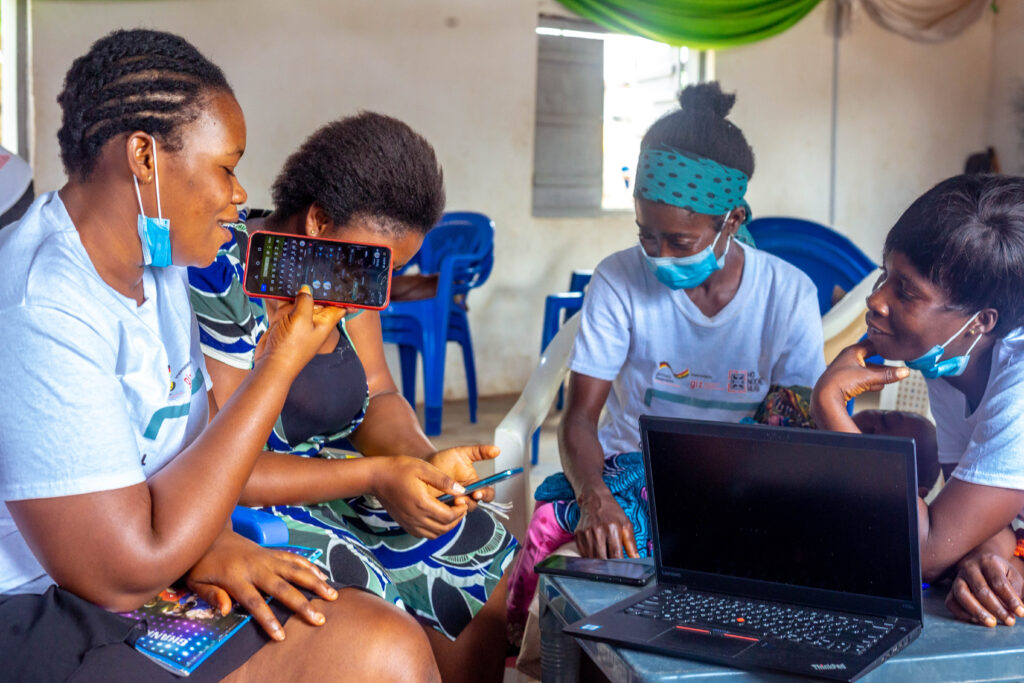
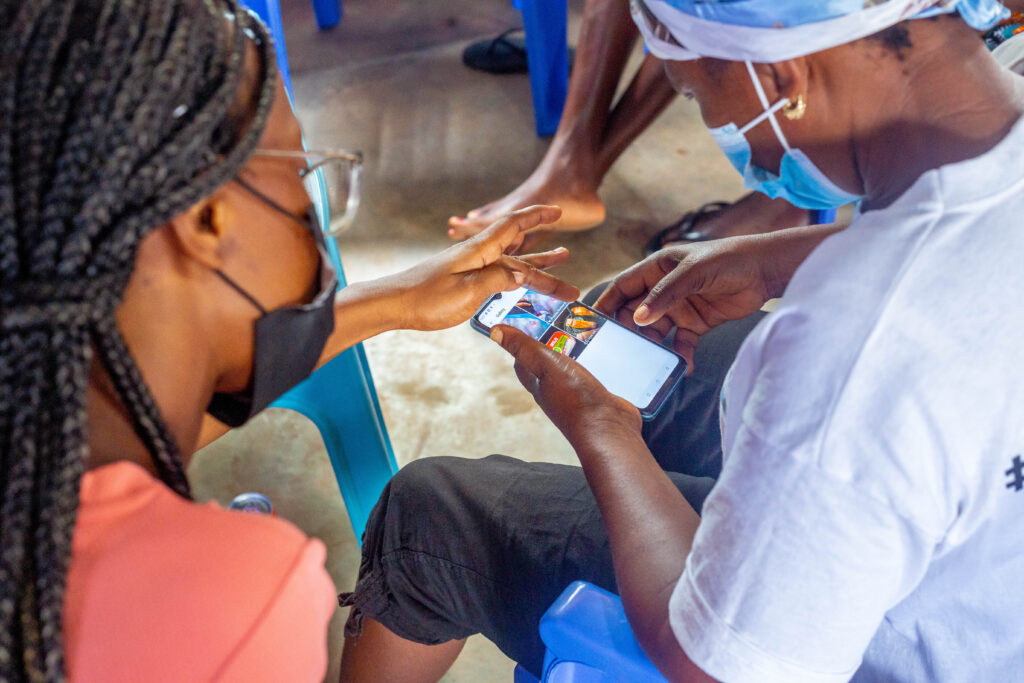
With the advocacy for women and girls to acquire skills to participate in the digital economy, we are proud to announce that in 2022 we partnered with GIZ, a German Development Agency, to train 50 women who are smallholder farmers and traders in Adaklu-Kojobi and Adaklu-Have in acquiring basic digital skills required to boost their ability to participate in today’s business environment under the eskills4girls program.
Sundown
The second edition of Node Eight’s flagship community storytelling event, “Sundown,” was held on Saturday, 7th May 2022, at Node Eight hub after a long break in production. Sundown is a storytelling event that brings together unsung heroes in our community and a selected audience to engage in an intimate by-fire-side conversation. Sundown seeks to inspire, educate, and provoke the audience to action with the success and failure stories of the narrator. The second edition hosted the Manager of Stanbic Bank Ho, Mrs. Malwine Amenu as the guest speaker. Mrs. Amenu’s journey began after National Service as a Receptionist at Stanbic Bank Spintex Branch.
SDGs Innovation Challenge
As part of Node Eight’s commitment to champion Sustainable Development Goals, we have consistently pushed for opportunities to help drive innovation that will transform Ghana and the world. In 2022, Node Eight, in partnership with the SDGs Advisory Unit of the Office of the President, UNDP, AGI, and Ho Technical University organized an SDG Innovation Challenge. The event was part of the Volta Region’s Edition of the SDGs Day Out. Ten Ghanaian startups addressing problems related to any of the 17 Sustainable Development Goals pitched to a panel of four (4) judges.
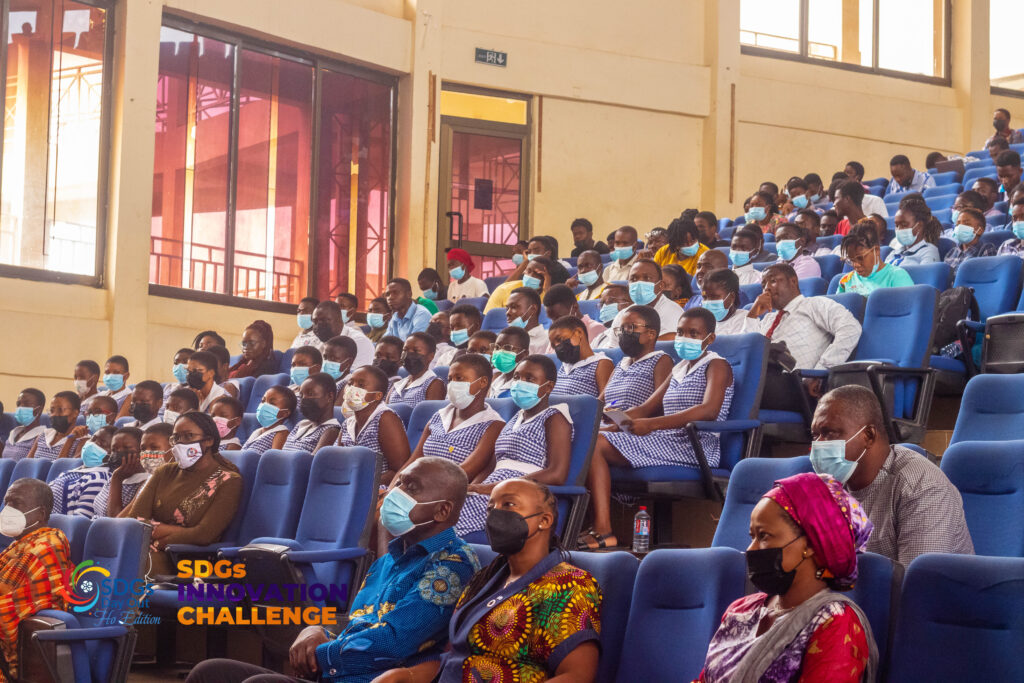
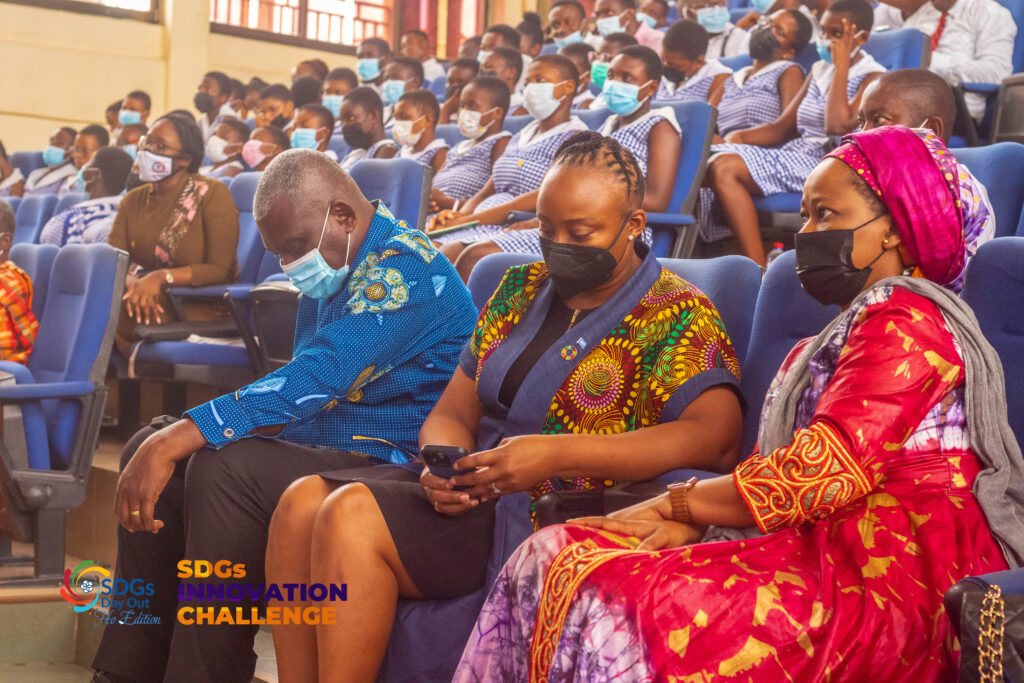
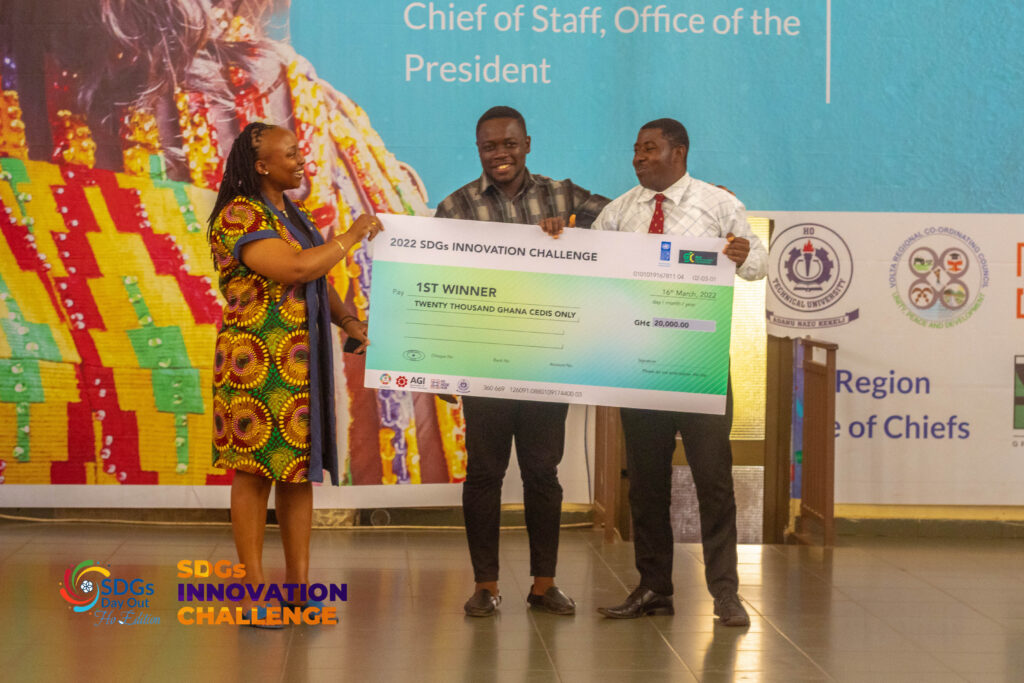
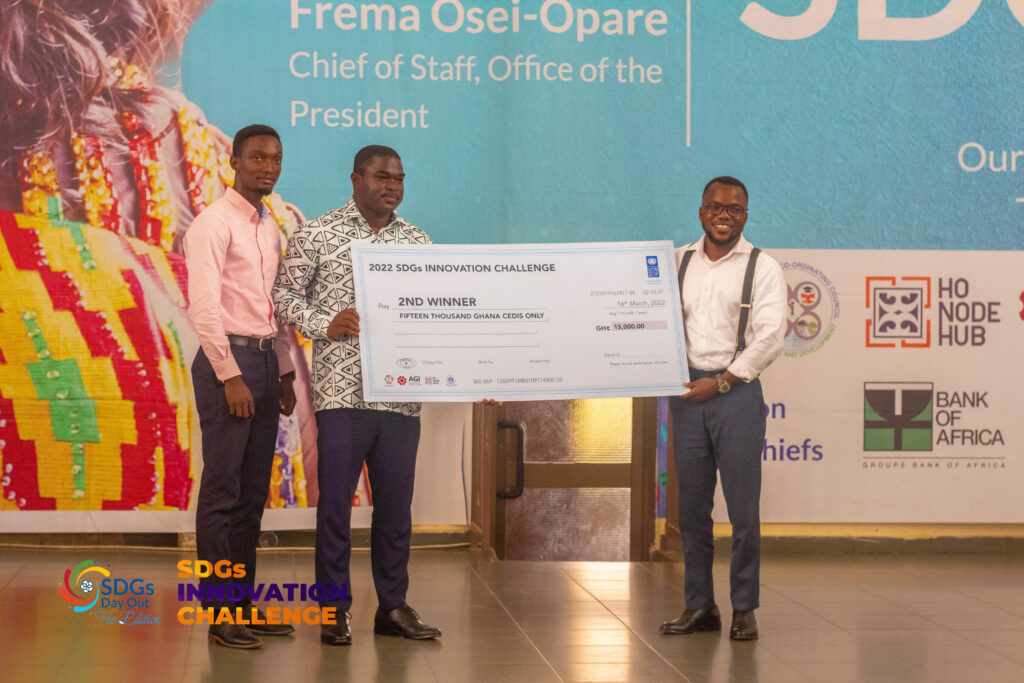
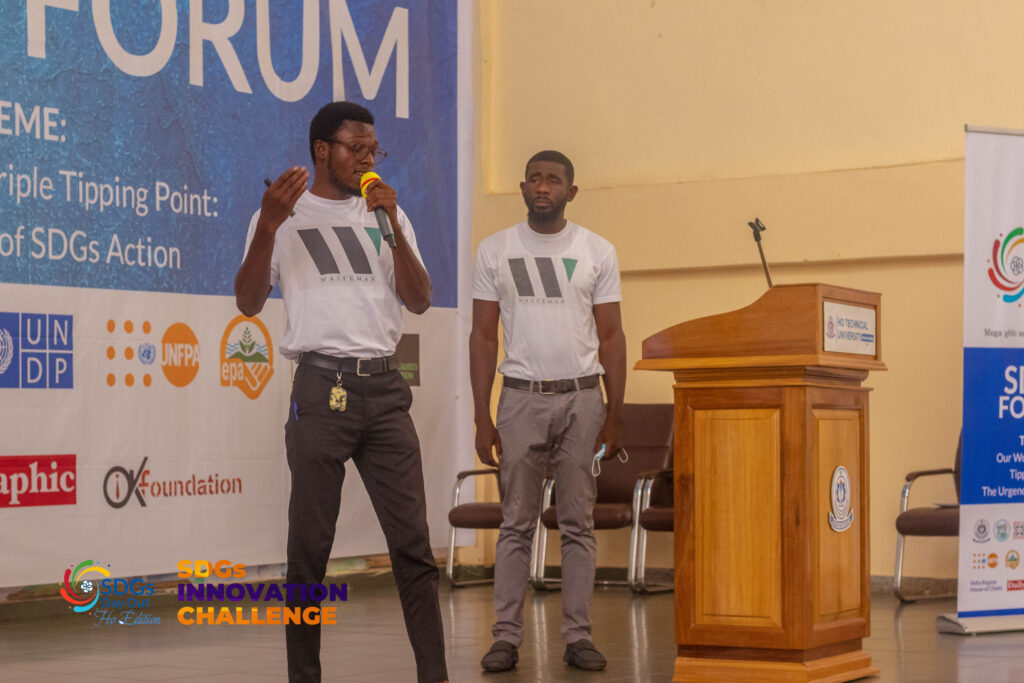
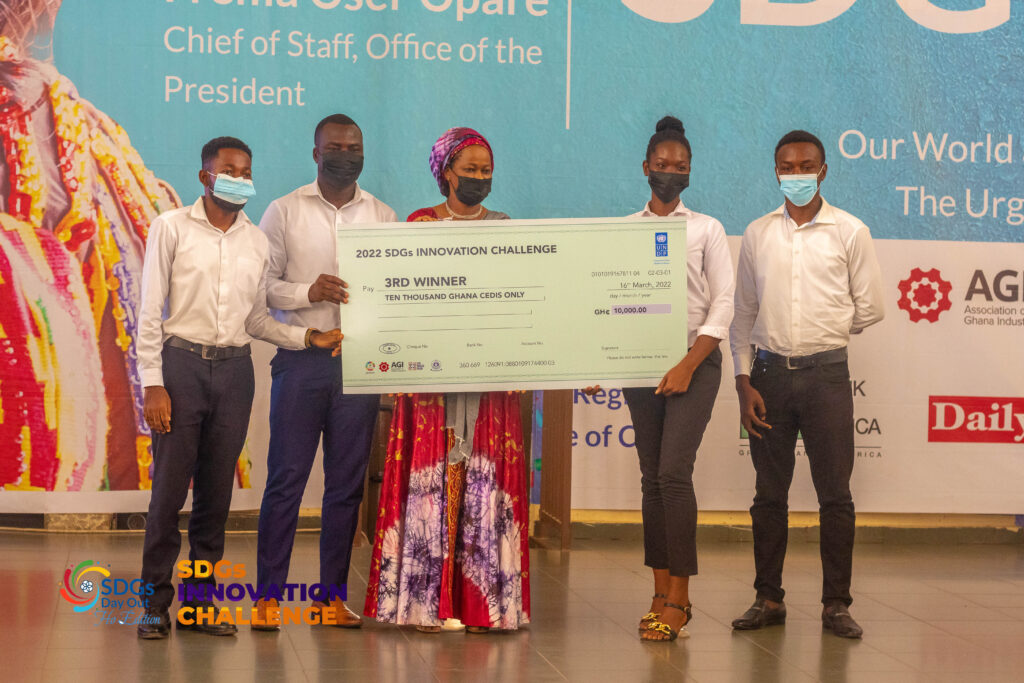
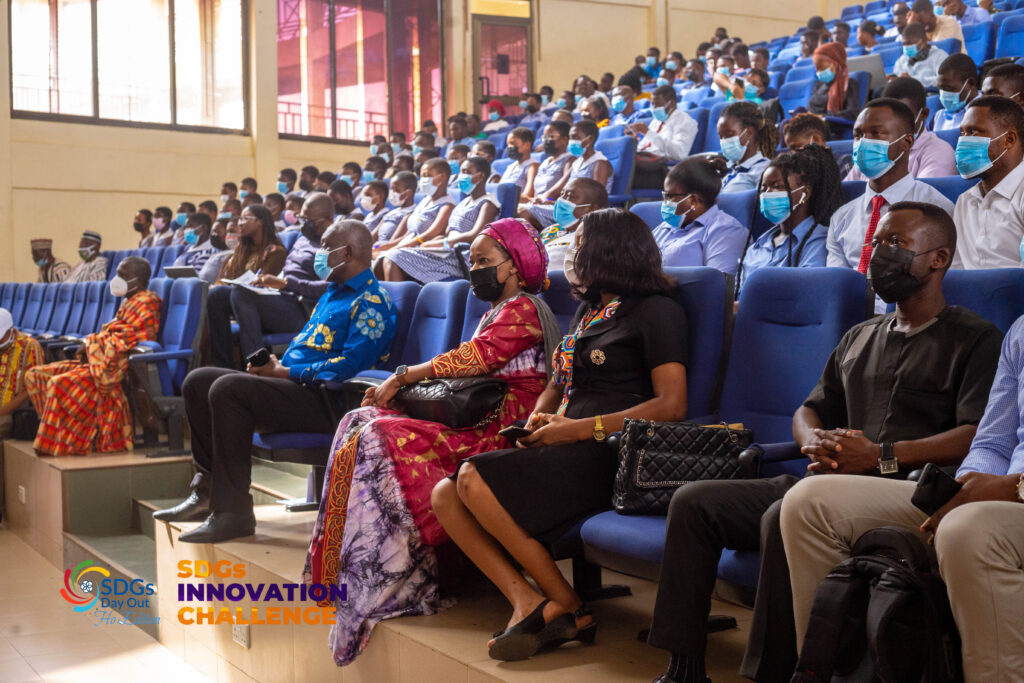
The event which happened at the GM Afeti Auditorium of the Ho Technical University had Mrs. Fatoumata Gakou (Deputy CEO of Bank of Africa), Dr. Eugene Owusu (the President Advisor of SDGs), Dr. Angela Lusigi (Resident Representative of UNDP), Mr. Charles Bani (UN Resident Coordinator), Traditional Rulers, Tertiary students from Universities, Entrepreneurs, Senior High School students and the public were in attendance. Ehmblehm Farms and WASH Advancement Center (WAC) emerged as winners with a cash prize of GHC 45, 000 and incubation for their innovative ideas that address Sustainable Development Goals.
SE Ghana Advocacy Program
Moving forward, Node Eight’s commitment to our Entrepreneurs’ Community fueled a partnership with Social Enterprise Ghana and Reach for Change Ghana for the SE Ghana Advocacy Program. This program was aimed at providing a platform for healthy dialogues between entrepreneurs and Duty Bearers in the Volta Region. This year’s edition indulged officials from the Ghana Revenue Authority, and the Ho Municipal Assembly. With the entrepreneurs, they had an extensive conversation on the challenges these entrepreneurs face and the measures these organizations put in place to eliminate them.
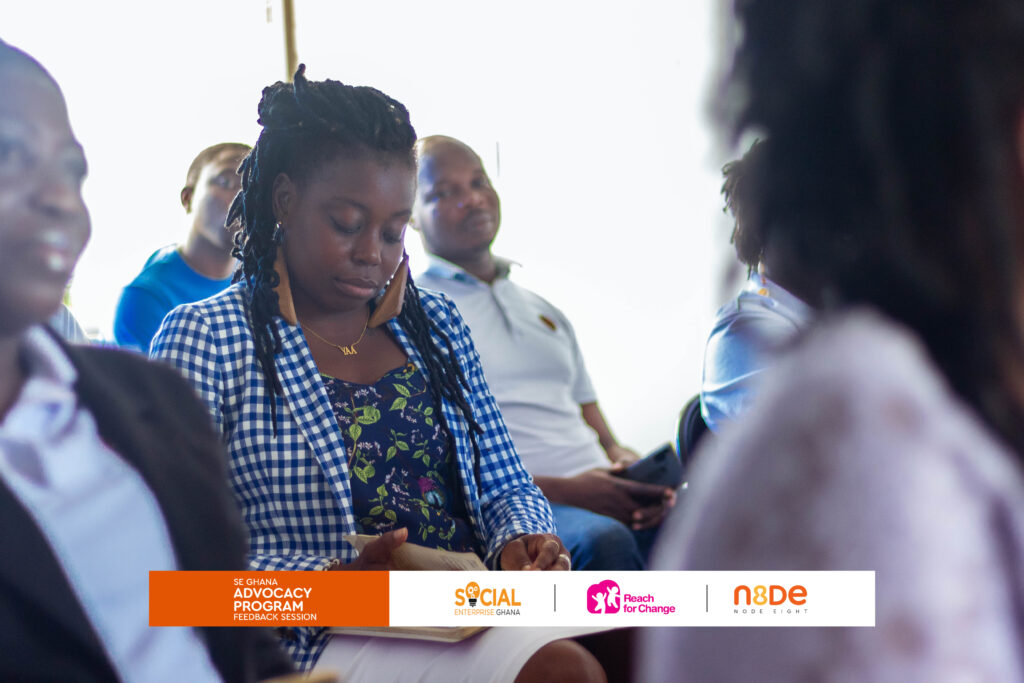
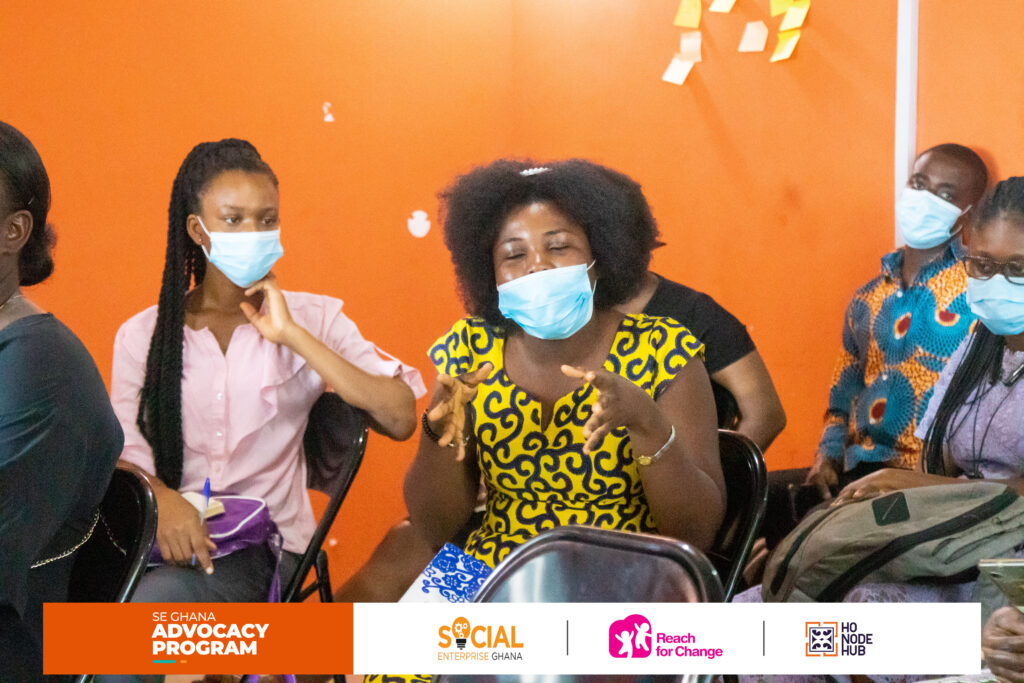
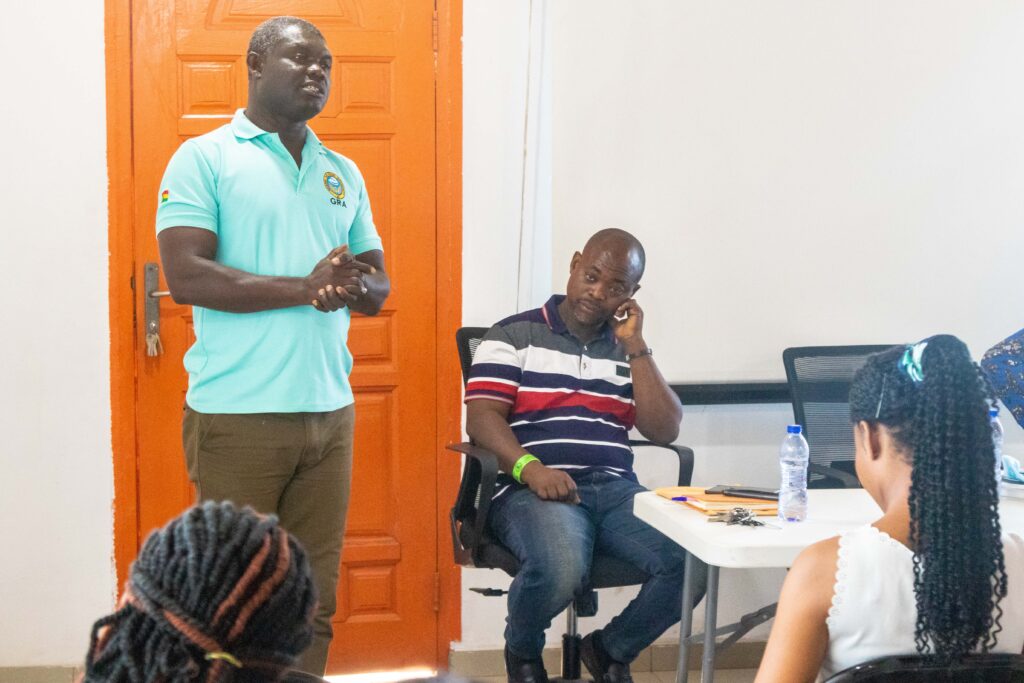
Node Eight GreenCubator Program
Also in 2022, Node Eight launched the GreenCubator Program which aims to increase the number of youths in agriculture and reduce youth unemployment. The program is a four-month incubator program designed to support young graduates to launch their first farm.
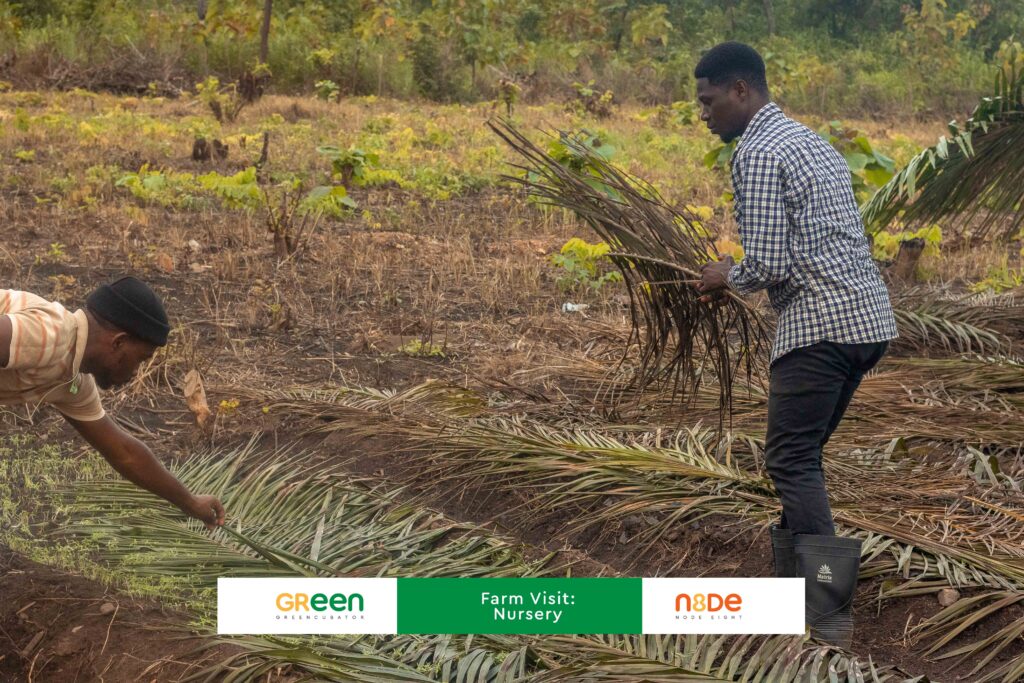
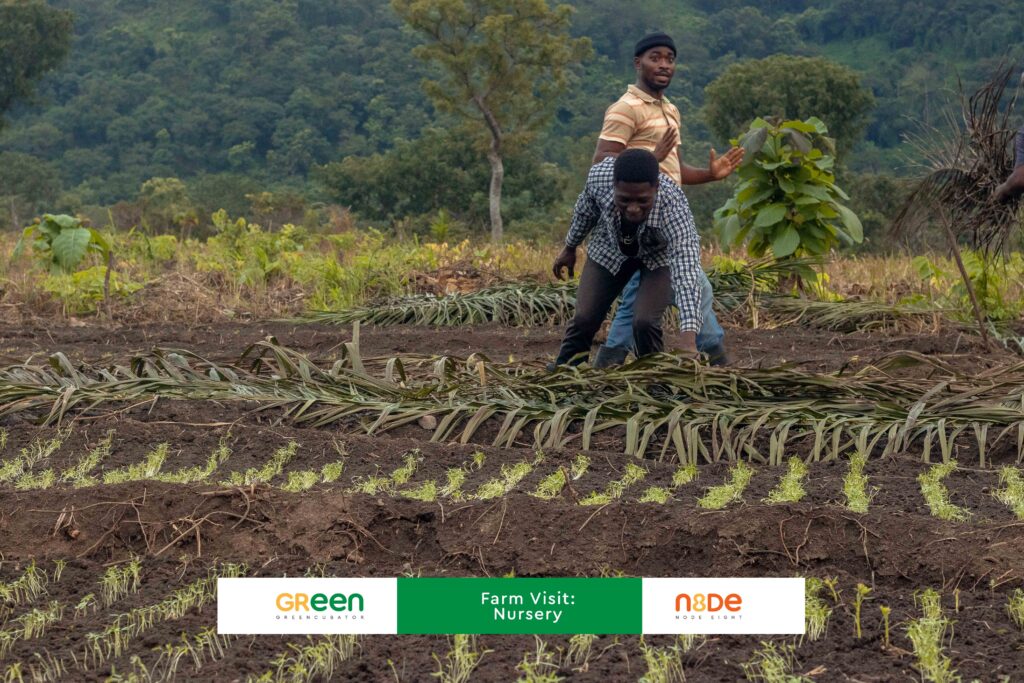
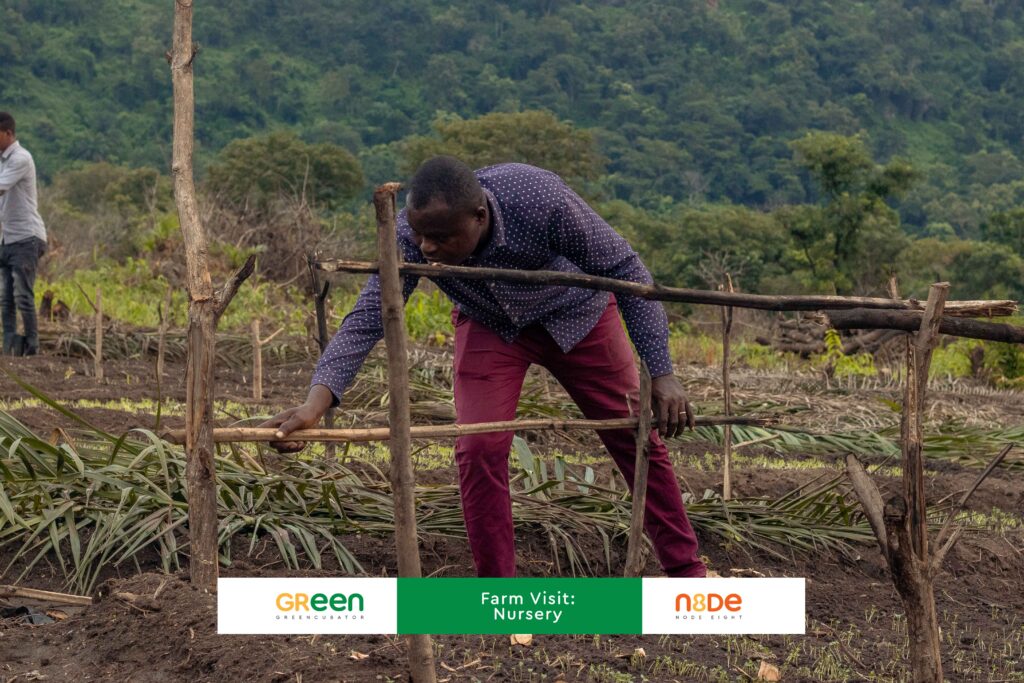
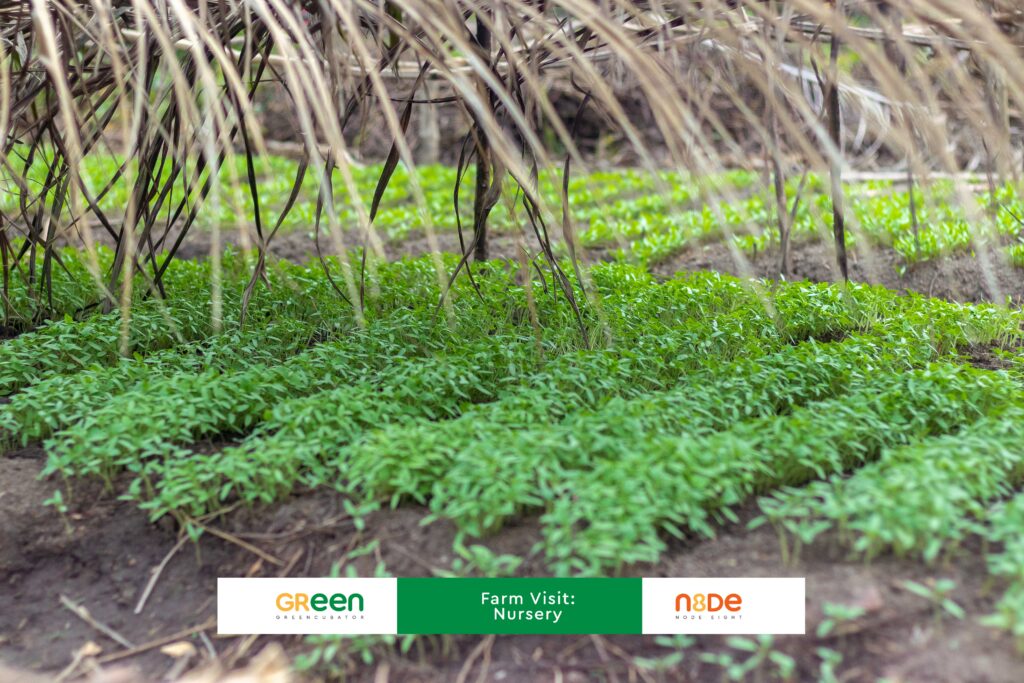
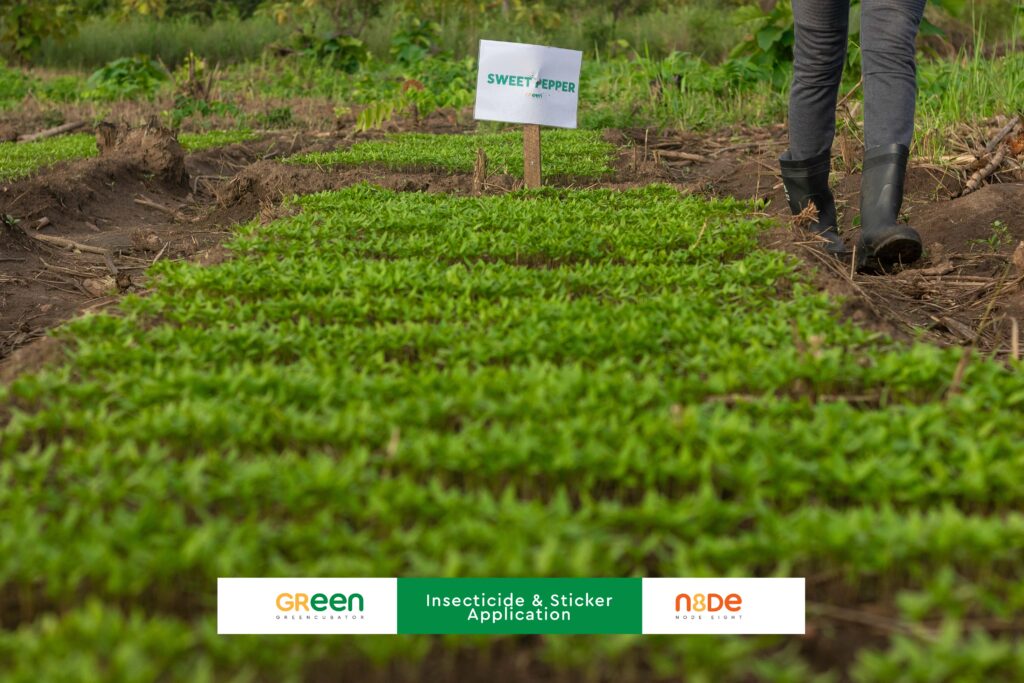
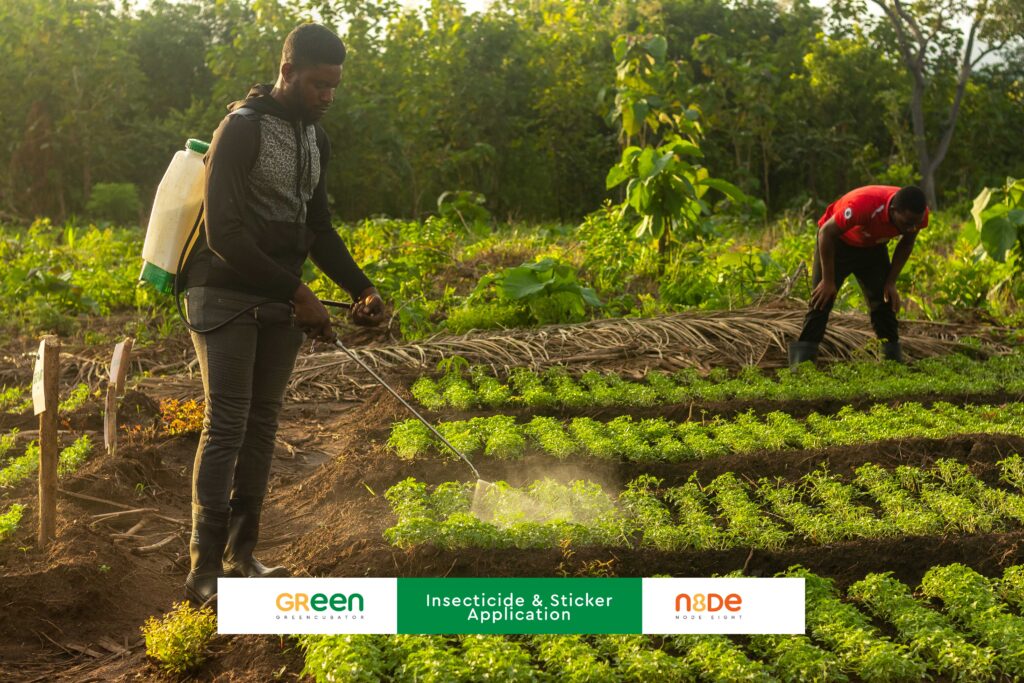
The GreenCubator Program is a practical farming skills program where participants are provided with a plot of irrigated land, seed, and agricultural inputs to launch their first farm. Also, they are receiving training on best farm management practices to increase yield and post-harvest handling. The program also facilitates peer-to-peer learning and mentorship to keep new farmers motivated in their journey. Furthermore, to prepare the incubatees for future entrepreneurship they are undergoing entrepreneurship and fiscal management training to manage the business aspects of their farms. At the end of the program, off-takers will buy harvest from all farms providing direct income to new farmers. This design is intended to assist green entrepreneurs in practicing skills and forming habits necessary for success in agriculture.
JA Google Certification Program
In the final quarter of the year, Node Eight in partnership with Junior Achievement Ghana funded by Google.org has offered scholarships to forty-two (42) young people with low-socio economic backgrounds to acquire professional certificates in IT Support, UX Design, Data Analytics, and Project Management on Coursera. This partnership aims at providing Ghana’s youth with the tools and skills they need to be prepared adequately for professional futures as entrepreneurs who create jobs for themselves and others or as employees who add value to their employers. Successfully certified participants were eligible for employment apprenticeships, internships, and jobs. Furthermore, they continue to receive coaching and mentorship about opportunities, trends, and challenges in the ICT industry by ICT professionals to guide and enhance their job search.
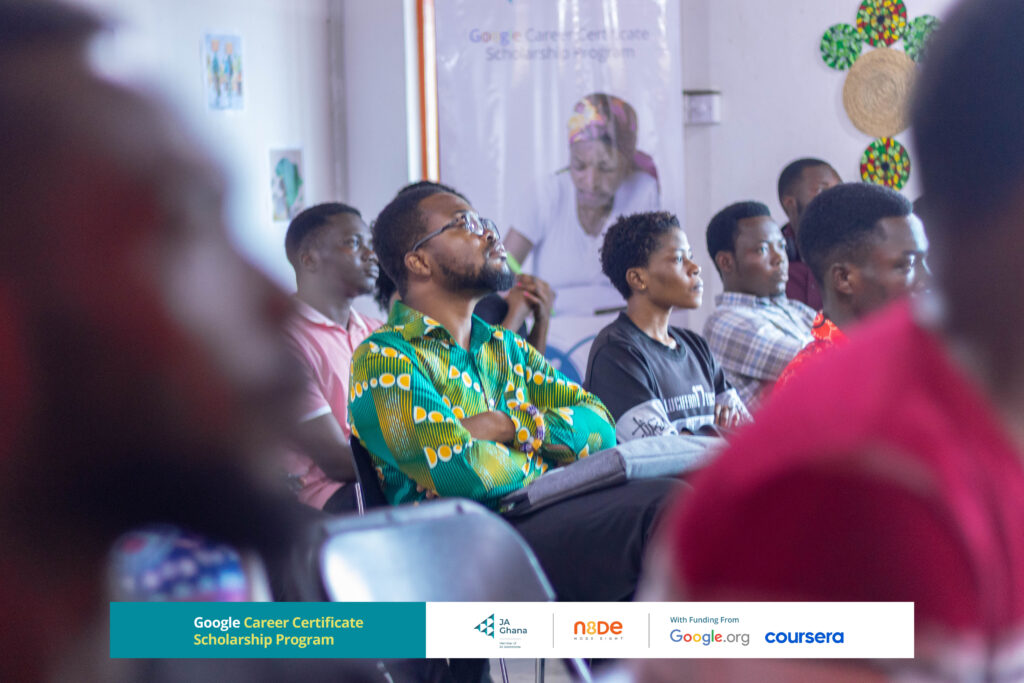
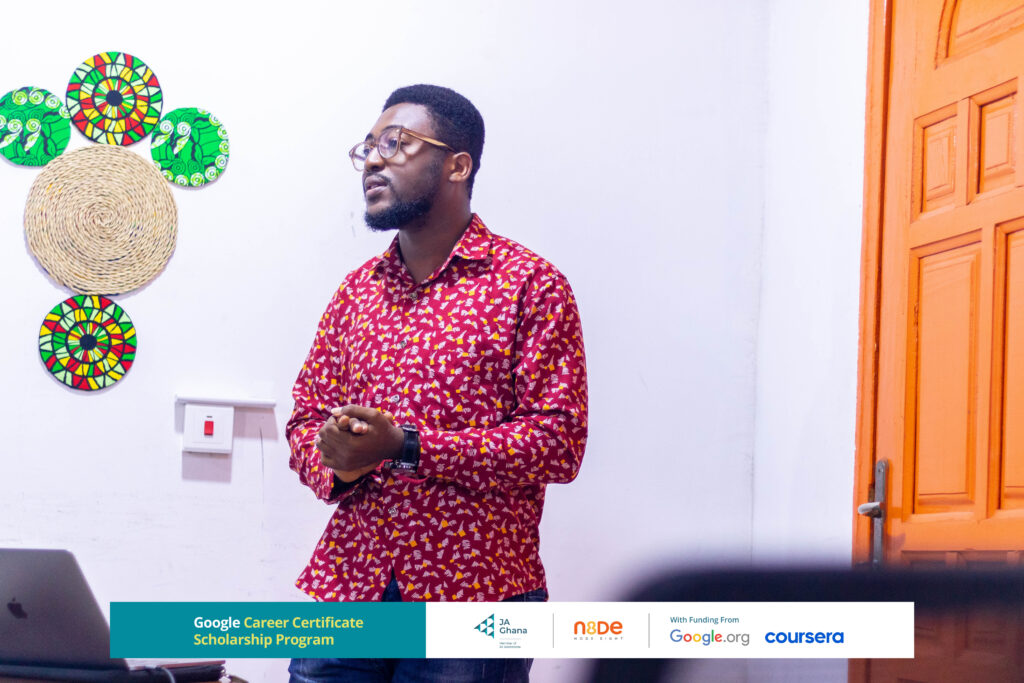
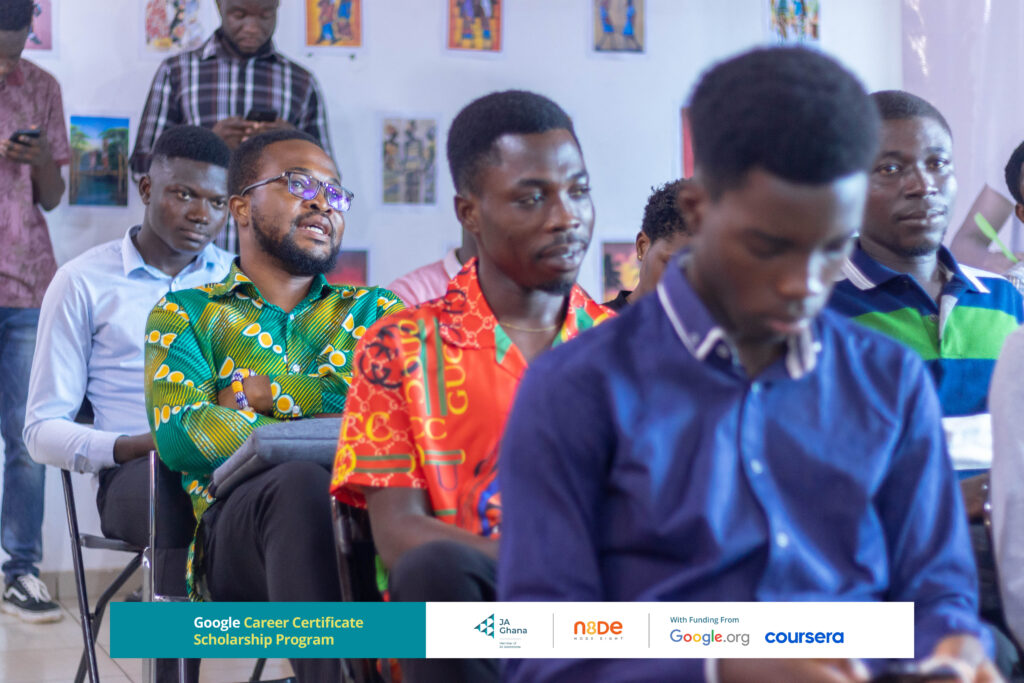
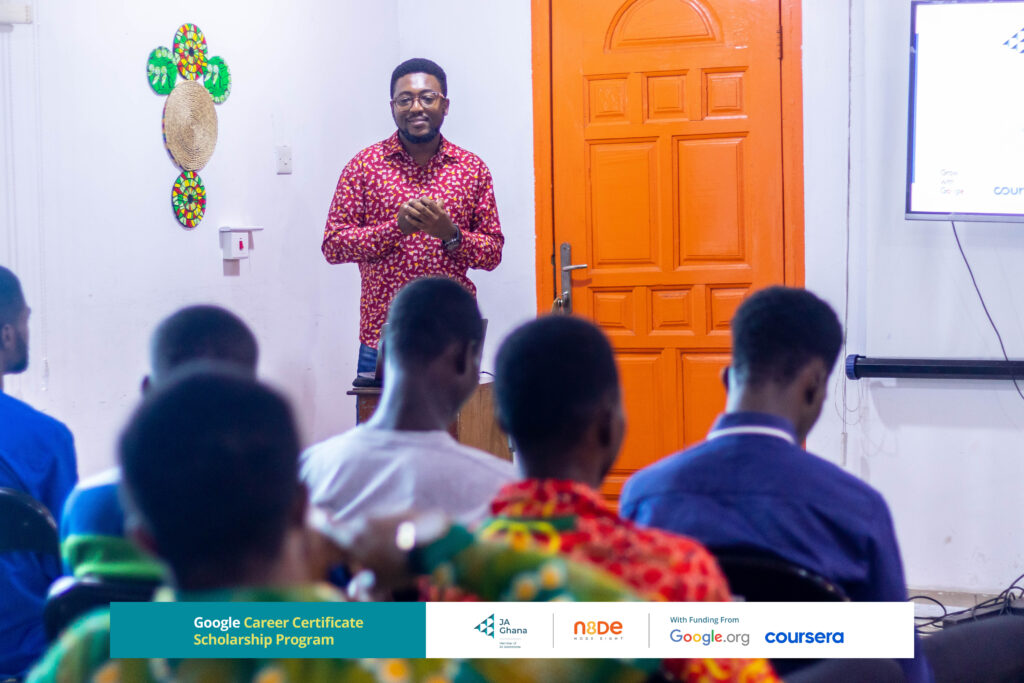
SDGs Incubation Program
Our partnership with UNDP for the SDG Incubation Program has been a tremendous success. We were able to help accelerate the growth of startups that won the SDGs Innovation Challenge, and we are so proud of what they have accomplished! The Incubation Program is a six-month incubation program that helps startups invest in solving problems related to the Sustainable Development Goals. The curriculum was designed as a framework aimed at supporting these startups to grow their businesses. Growth ranges from acquiring customers, increasing revenue, and partnering with other organizations to expanding beyond their catchment areas. We provided funding and coaching for these ventures and trained them in how to run successful businesses.
Node X
Node Eight’s first edition of Node X was a momentous success! In June 2022, Node Eight, in collaboration with the Department of Computer Science at Ho Technical University, held the first edition of Node X. The event was part of our mission to equip tertiary students with innovative thinking skills to meet real-world challenges.
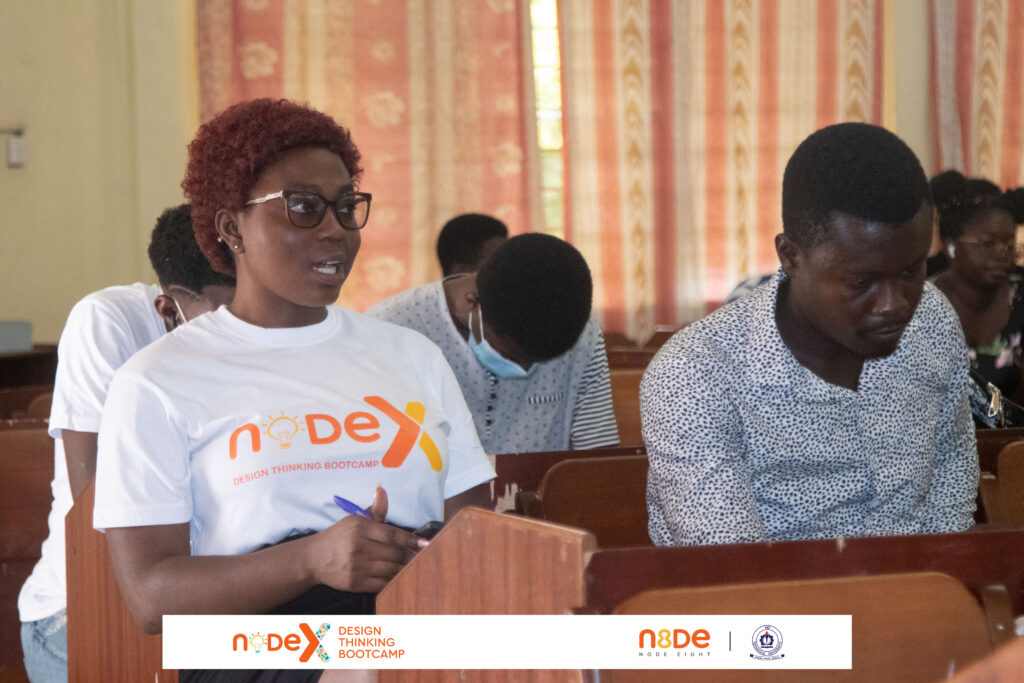
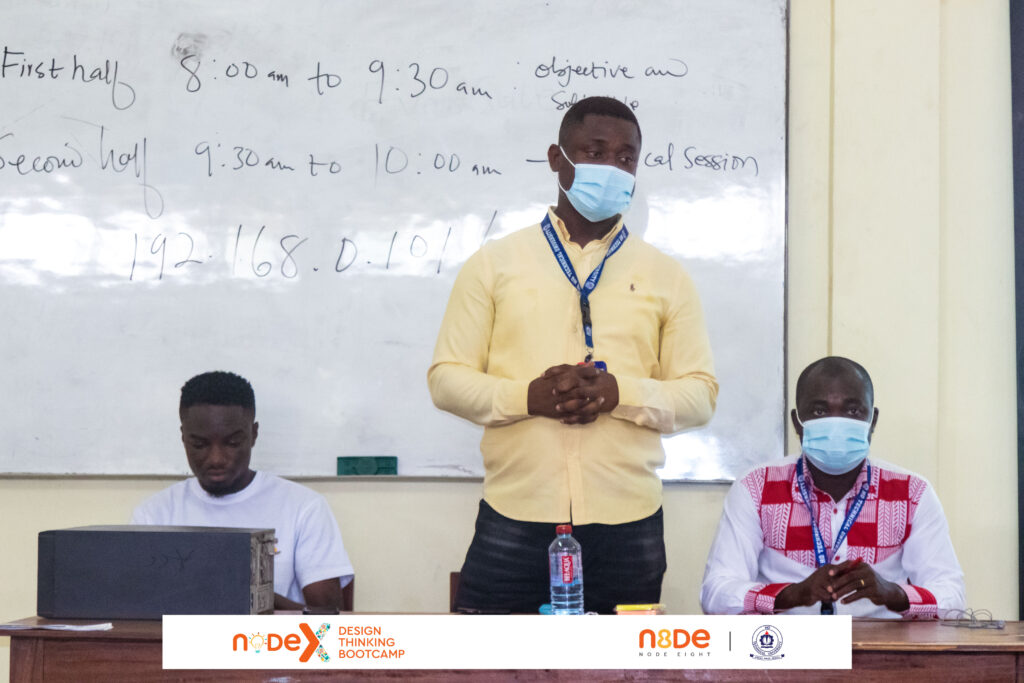
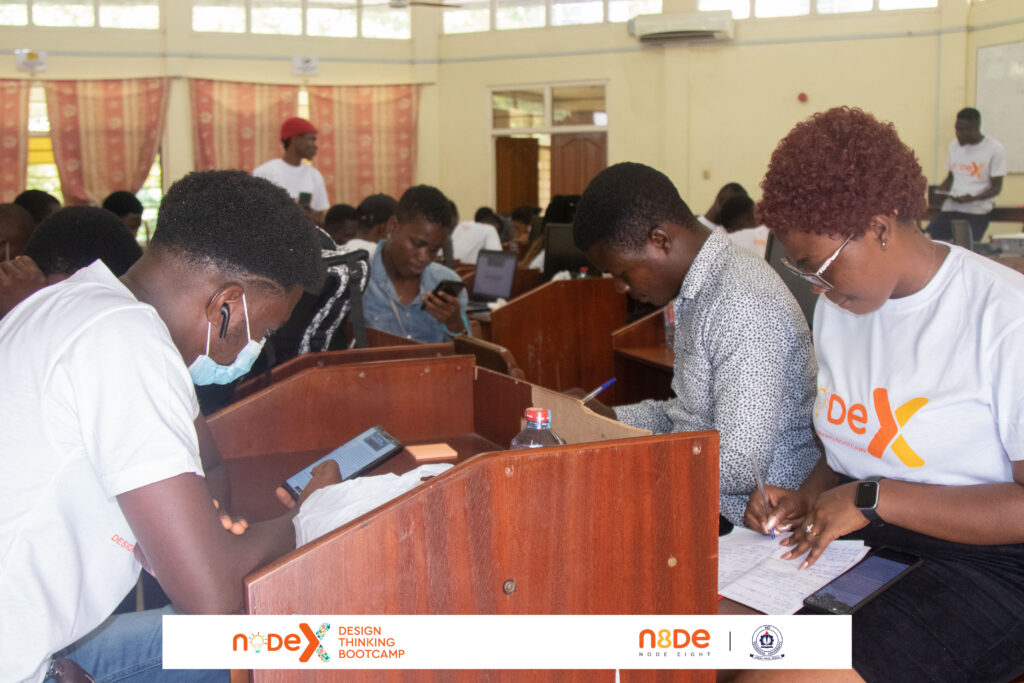
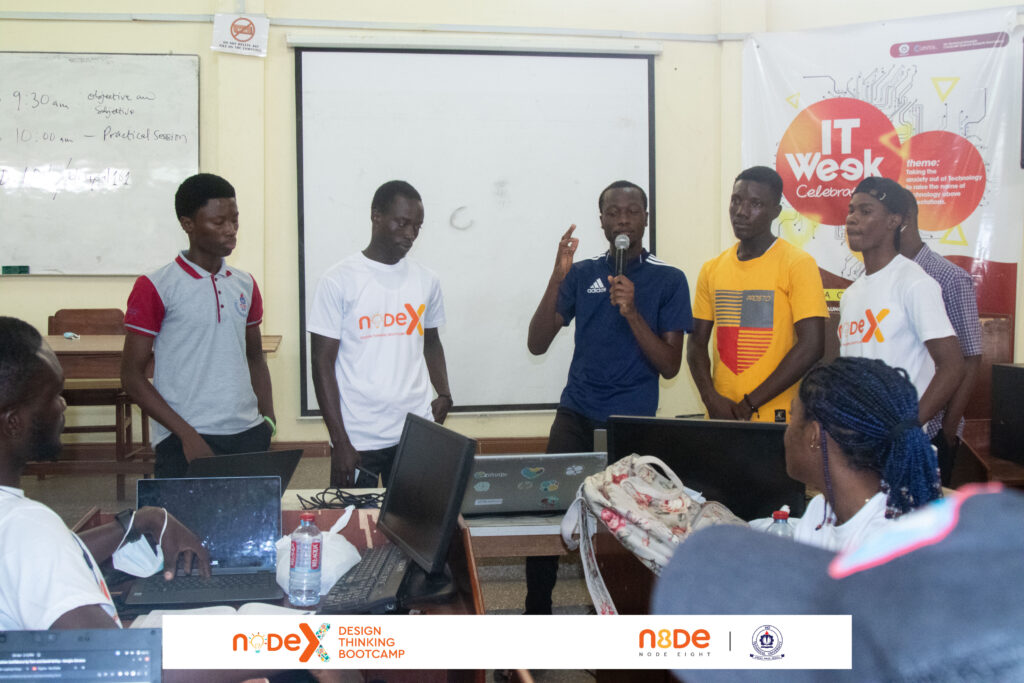
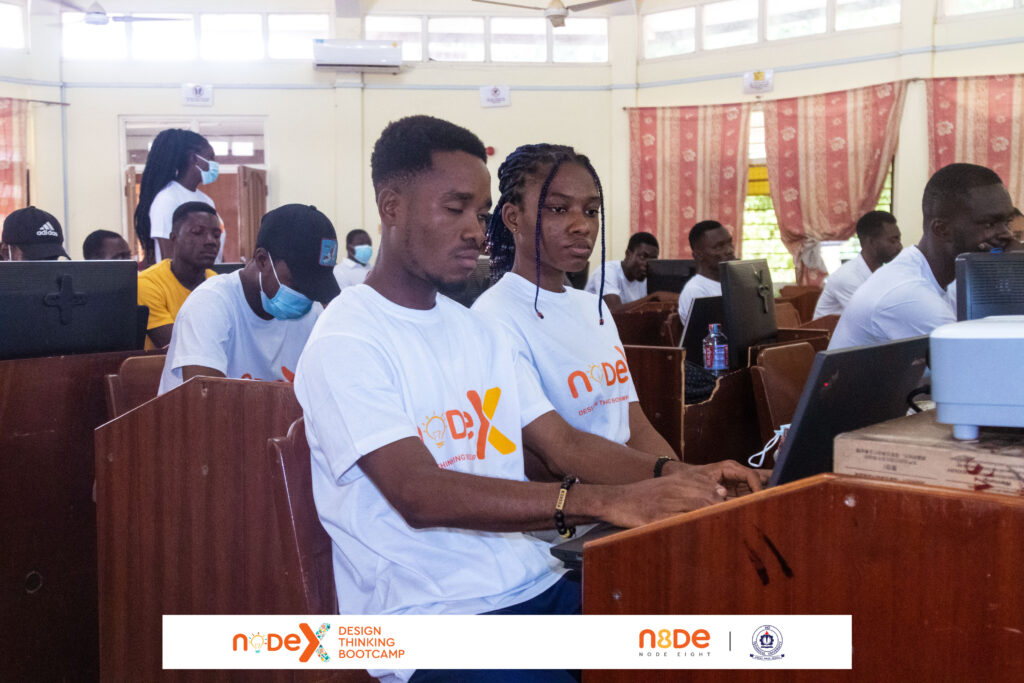
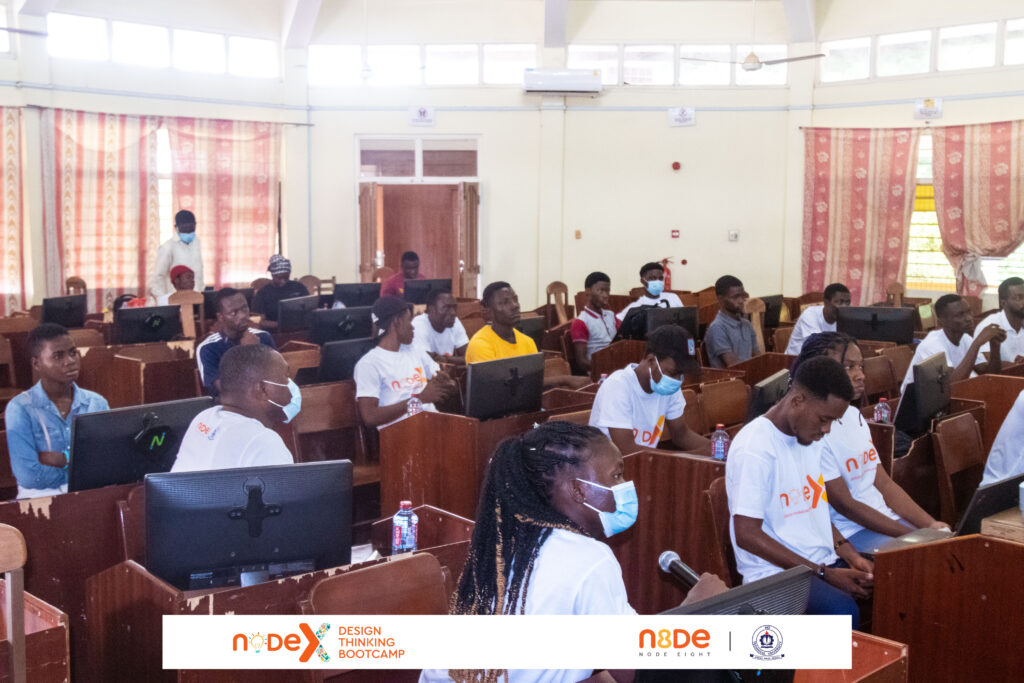
Node X is a two-day (2) Design Thinking Bootcamp designed to provide individuals and organizations with problem-solving skills. The two-day Bootcamp seeks to empower people with design thinking tools and expert mentors needed to produce innovative solutions to problems. Thirty (30) students participated in the maiden edition. In his keynote address, Mr. Adolf Sedem Adu, Head of the Department of Computer Science, emphasized the department’s commitment to providing students with problem-solving skills. He highlighted the importance of collaborating with organizations like Node Eight to bridge the “classroom-industry” gap.
Pre-MEST Digital Marketing Training
In 2022, MEST Africa and Node Eight trained and graduated sixty young people under the Pre-MEST Digital Marketing Program. The program is under the MasterCard Foundation’s Pathways to Sustainable Employment Program. It empowers beneficiaries to acquire skills in digital marketing in eight weeks and work experience by interning with local and international companies for 4 weeks has been successfully executed.
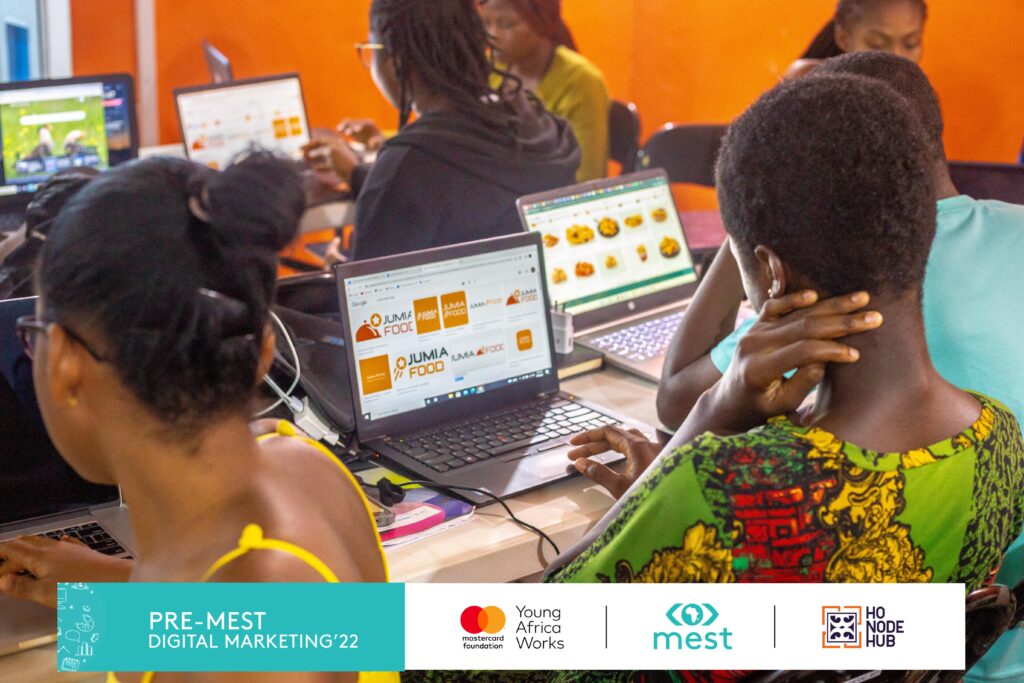
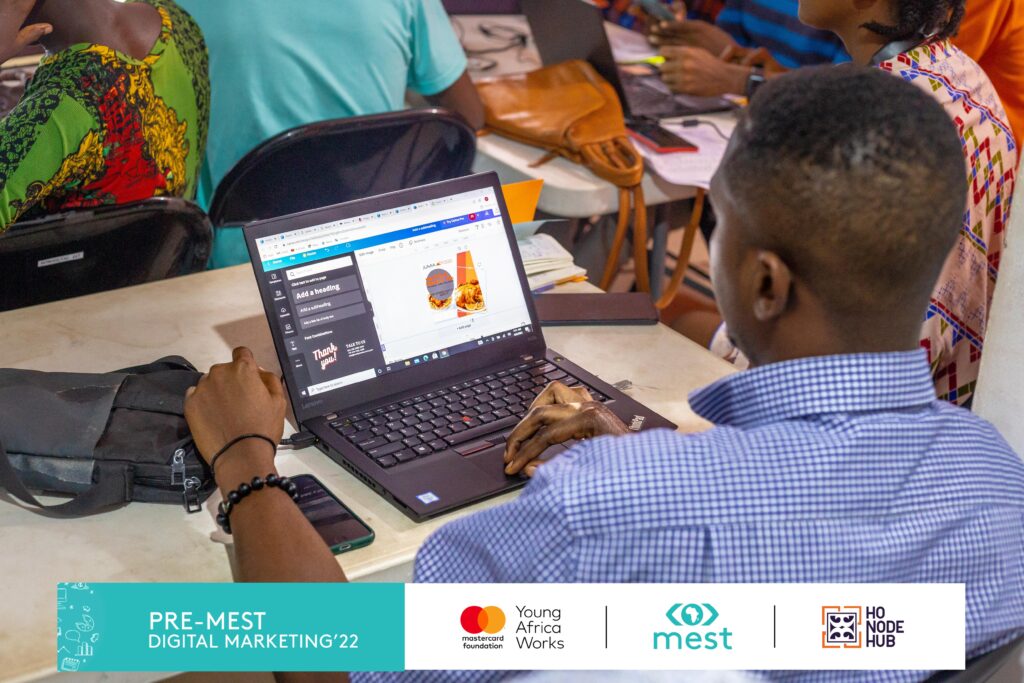
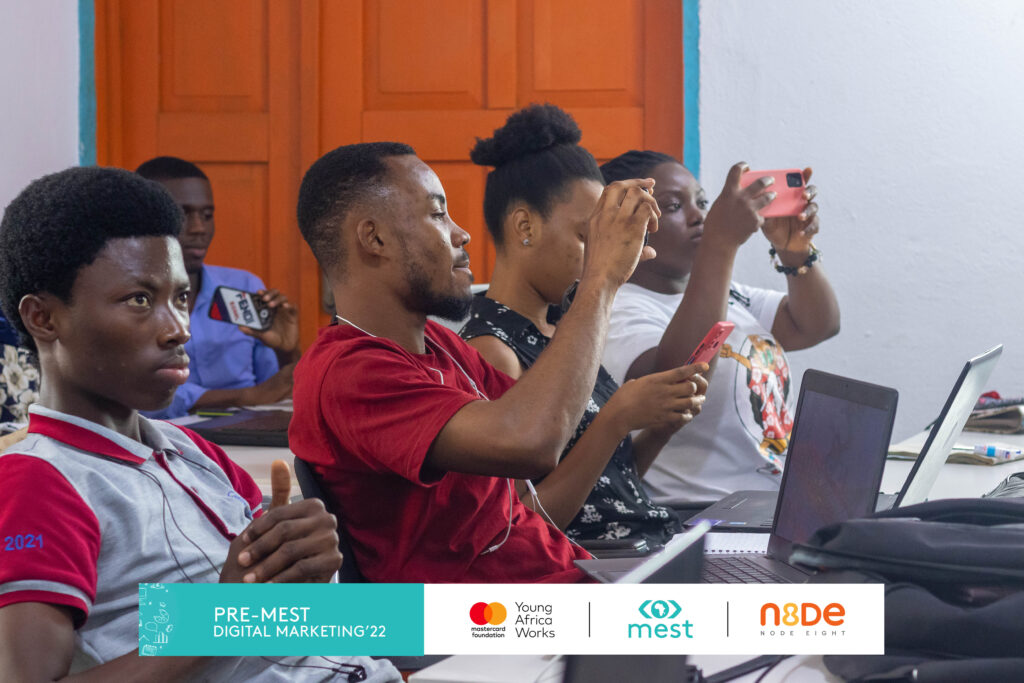
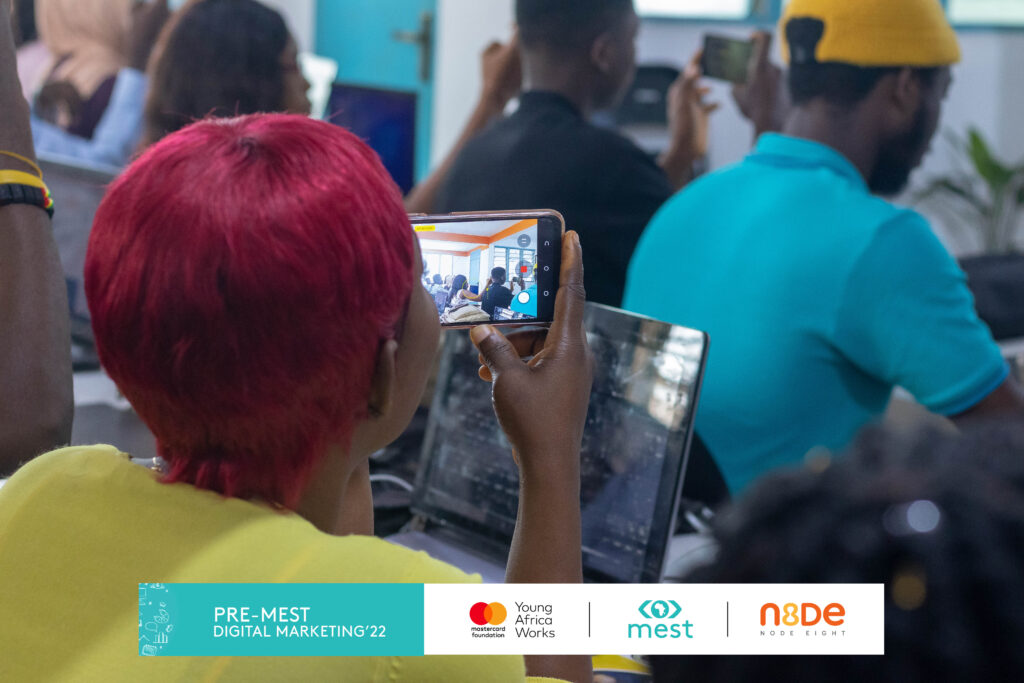
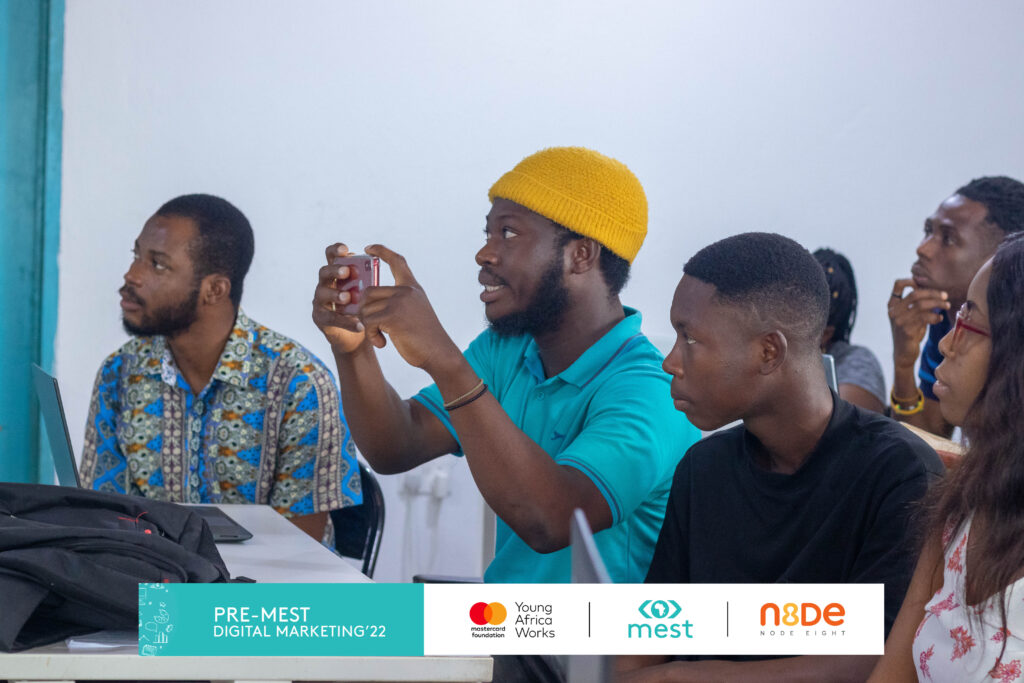
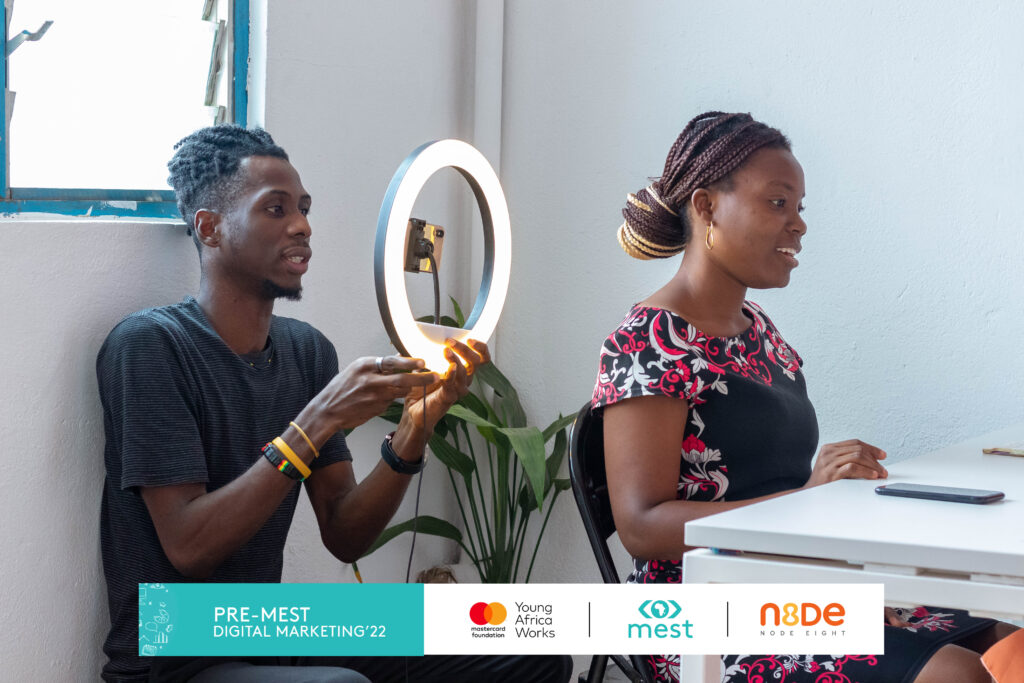
Hubiquitous IoT Hackathon
In the month of October, Node Eight in partnership with Cloud Port organized a three-day Hubiquitous IoT hackathon for all IoT enthusiasts and lovers at Node Eight. The participants received the event well received and learned how to use IoT devices to build their own projects. On day one, they introduced the participants to the IoTs and their technologies. Also, they had a session on Design Thinking to prepare them for their projects. On day two, the participants were divided into two groups where they worked on a project (irrigation system) as a practical example of how IoT devices work.
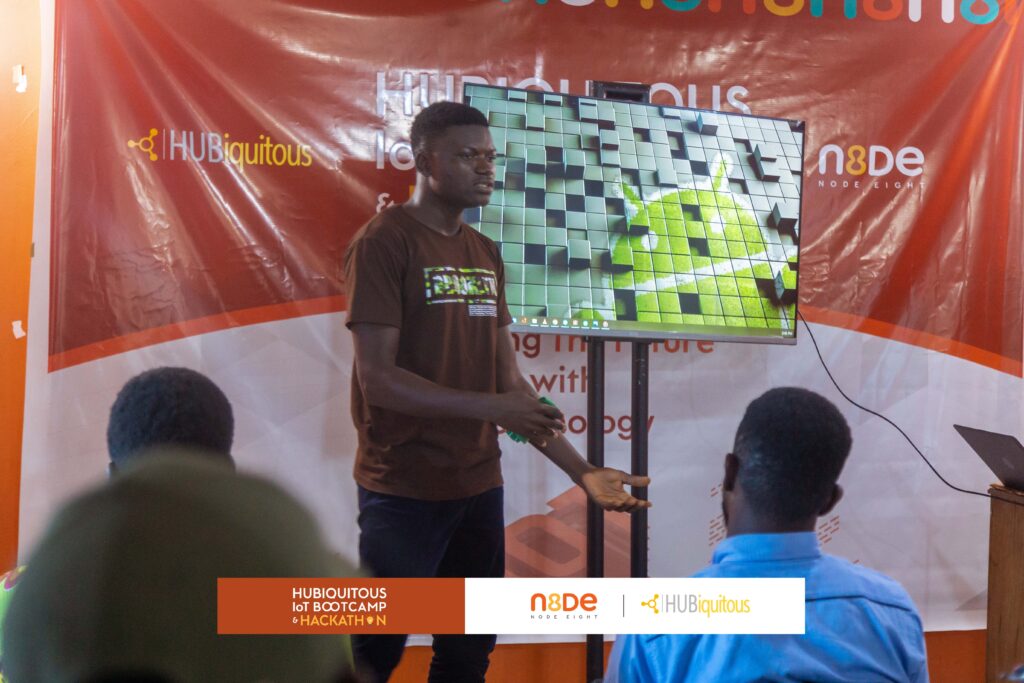
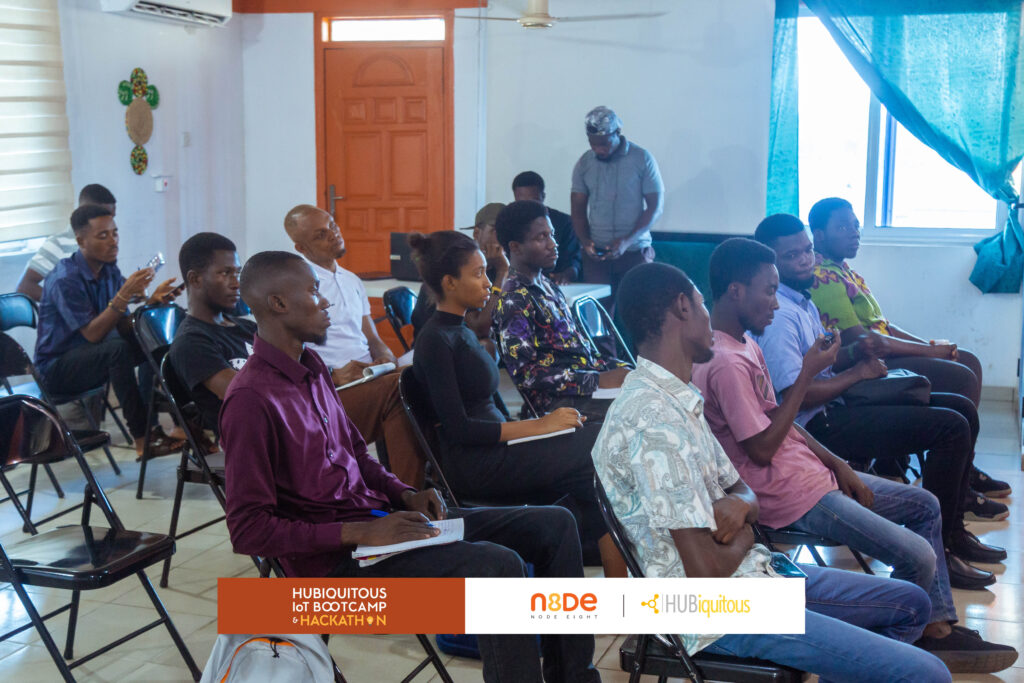
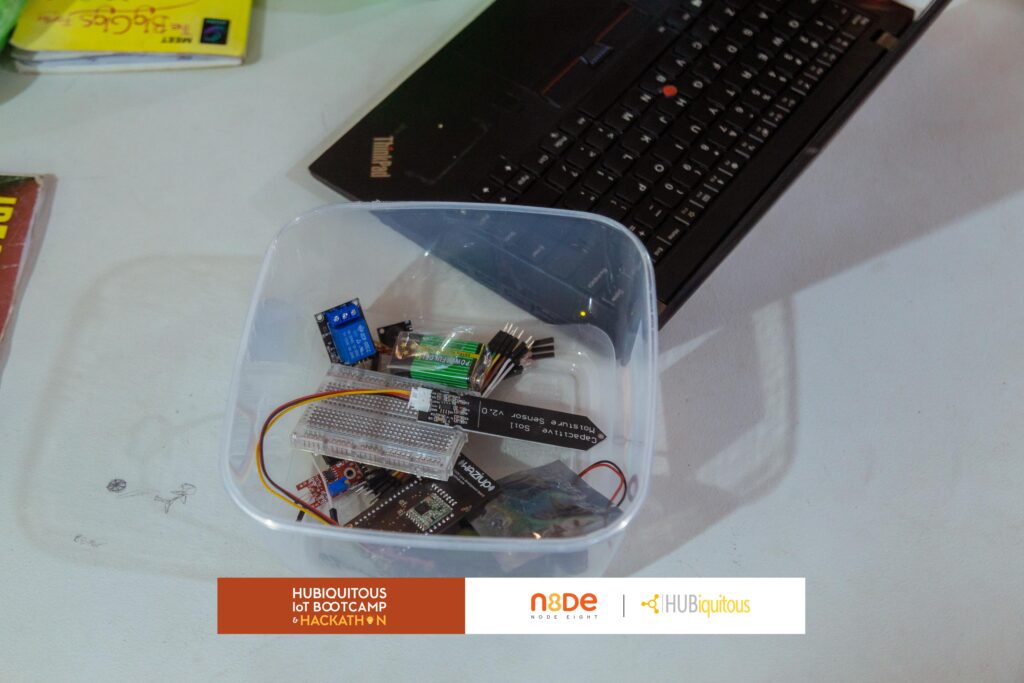
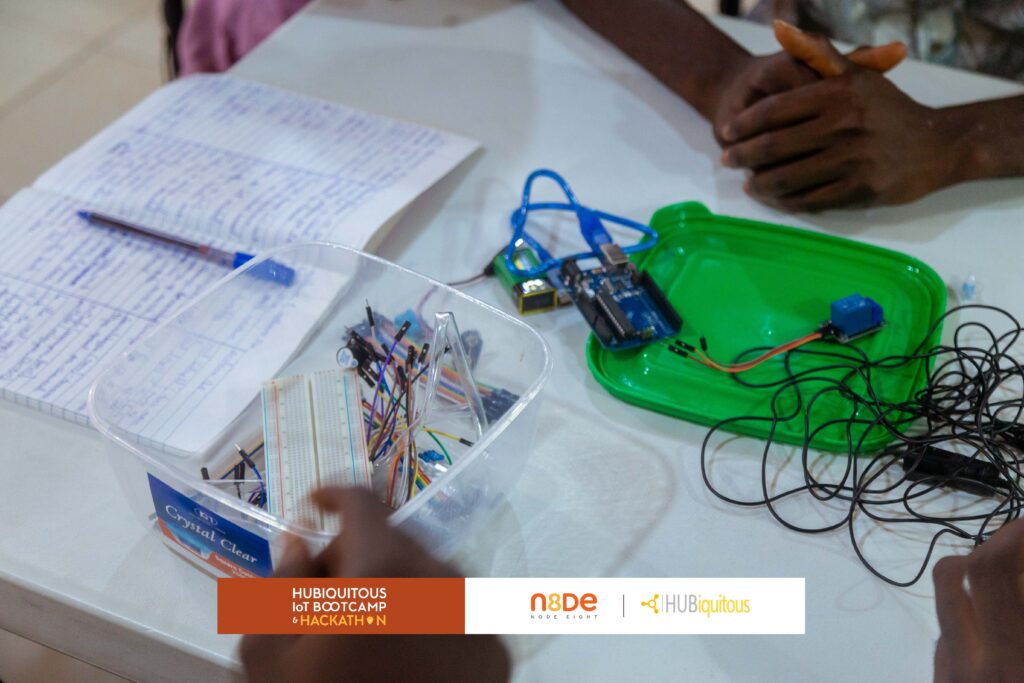
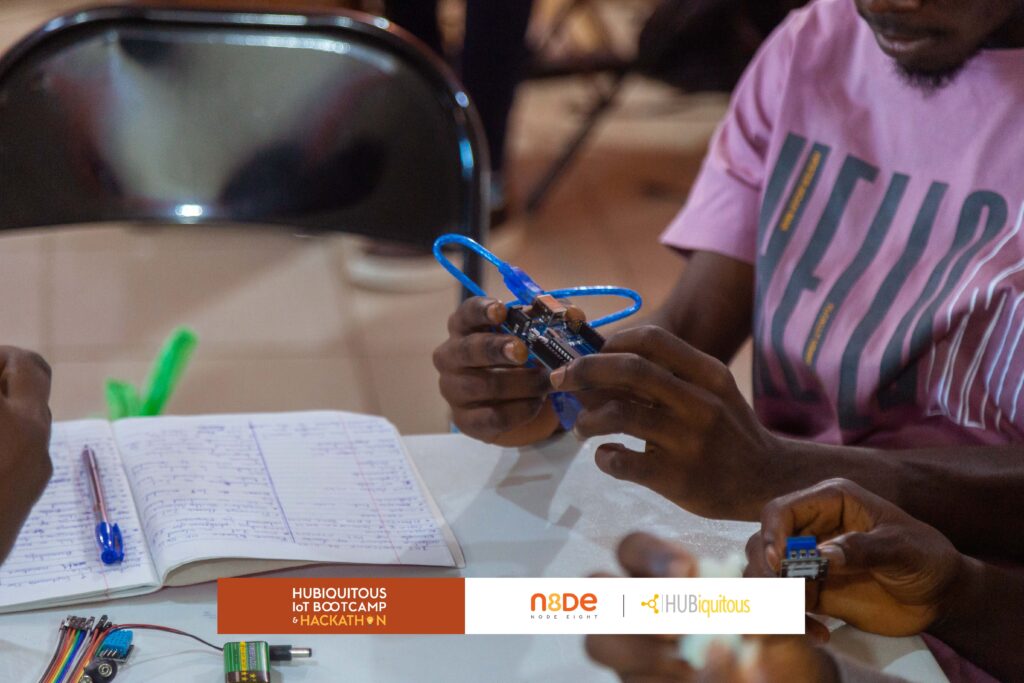
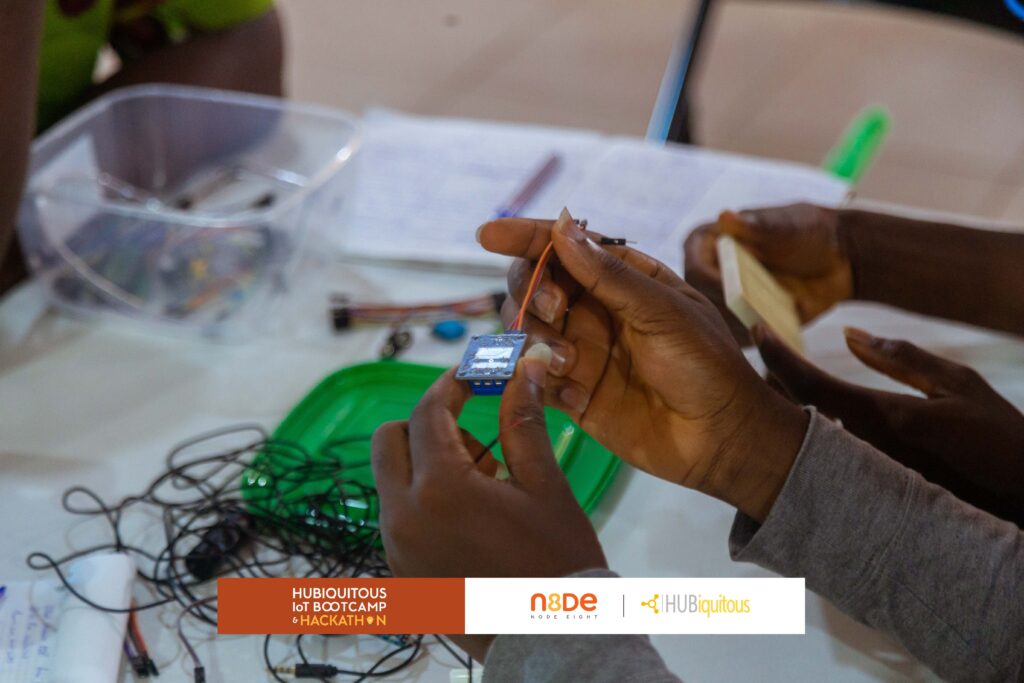
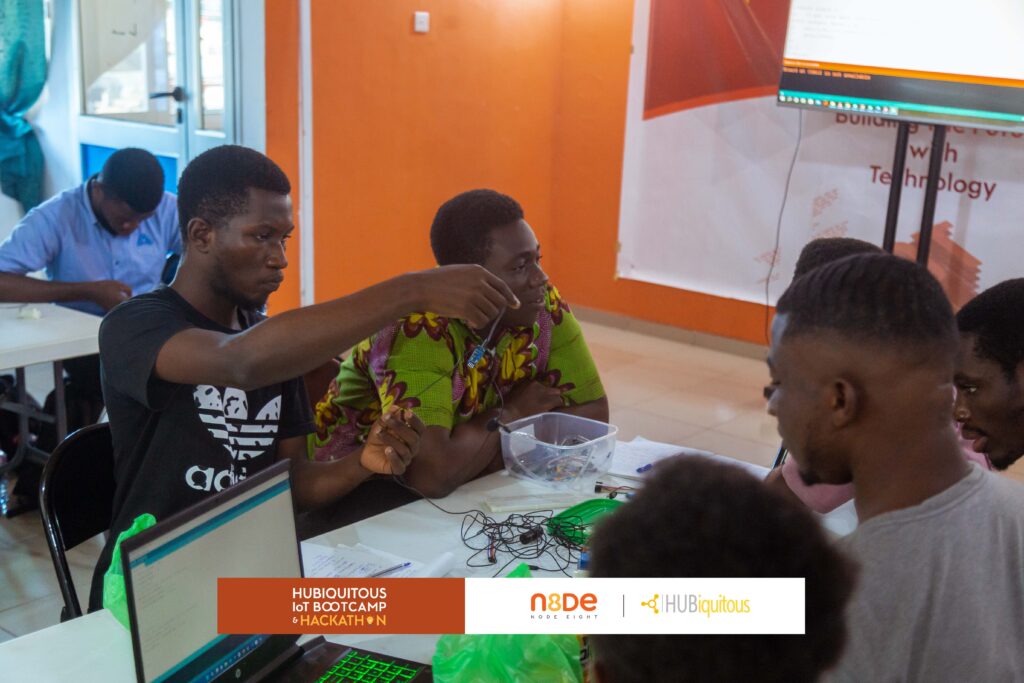
They ended the hackathon on day three with various group projects. Team MegaMinds worked on a Flooding detection system for the coastal areas. Team Deaza on an automated home appliance. Team Future a smart home and Team Crimp, is an automated warehouse. All teams presented their projects to an audience of judges who evaluated them based on their creativity and implementation of technology into their projects.
It has been an exciting year for us here at Node Eight, but we are even more excited about what is coming next!

